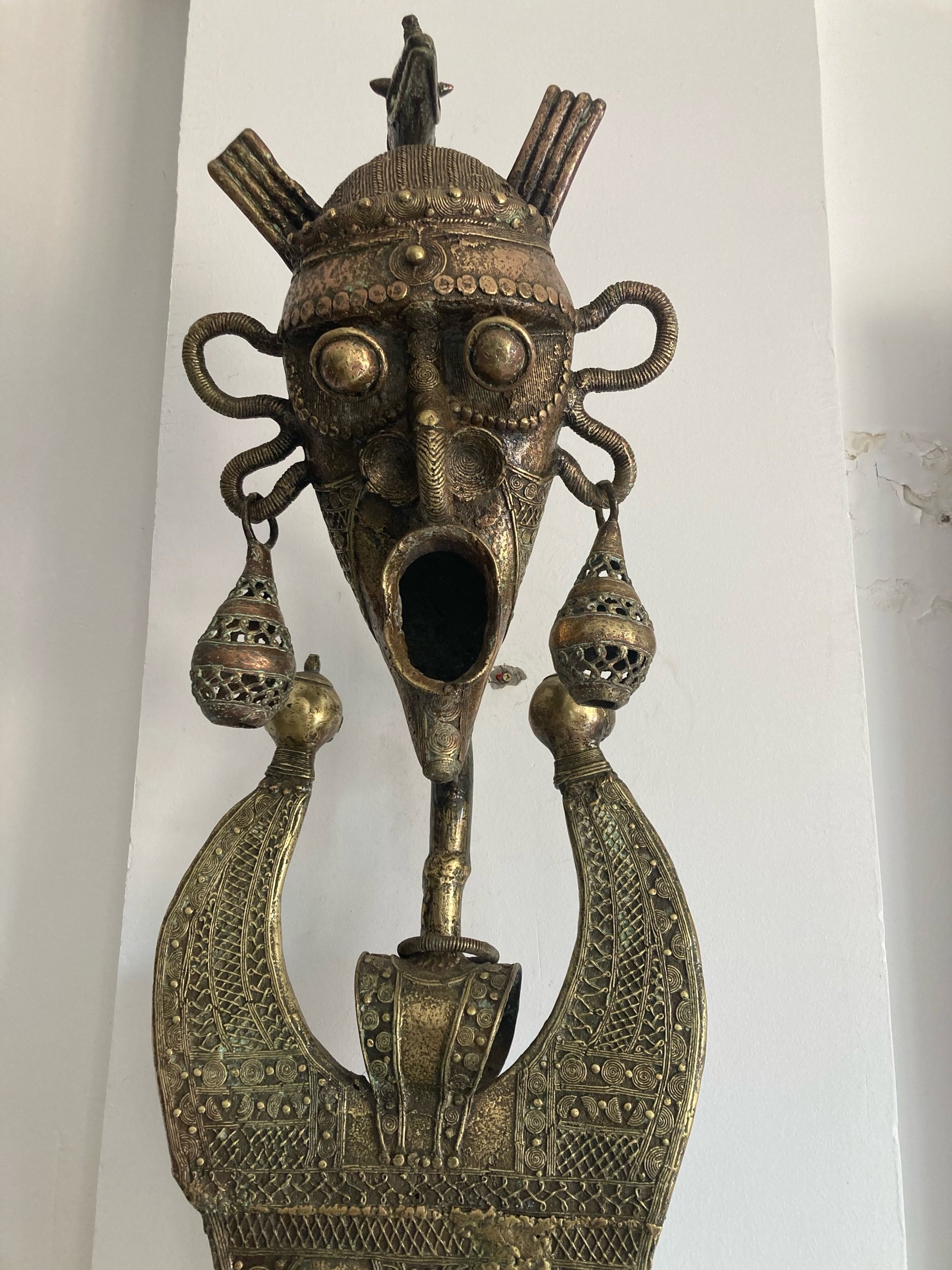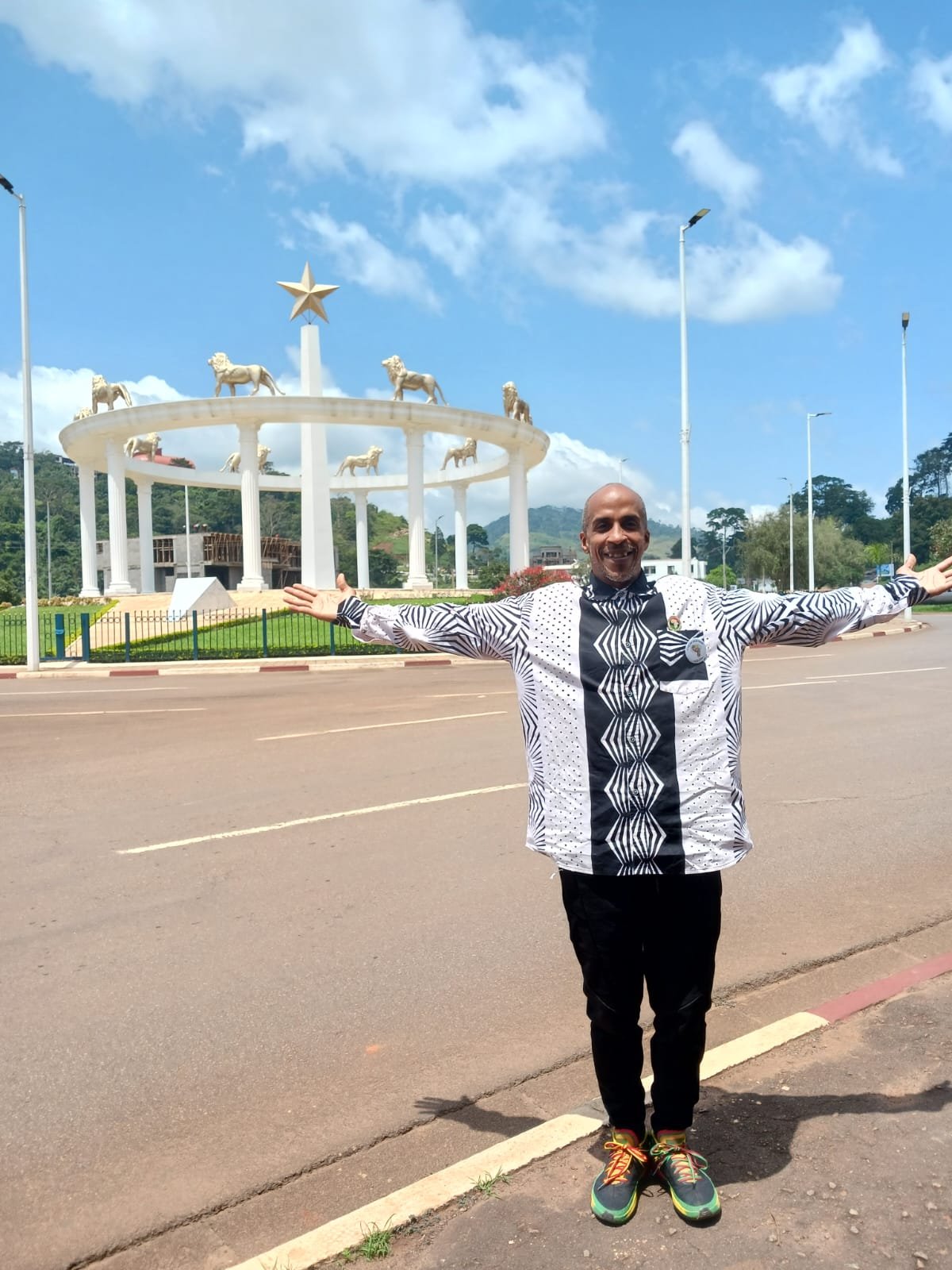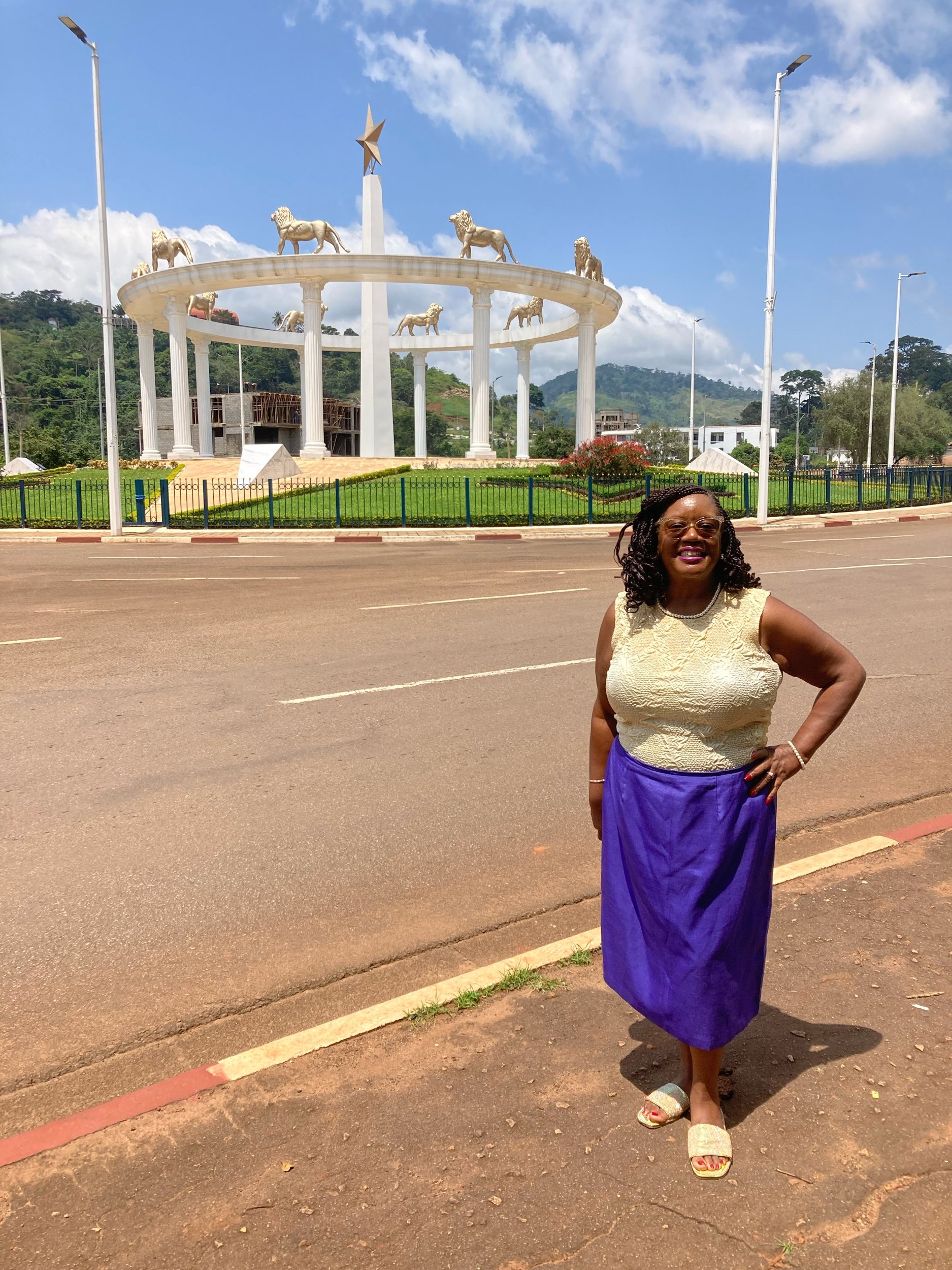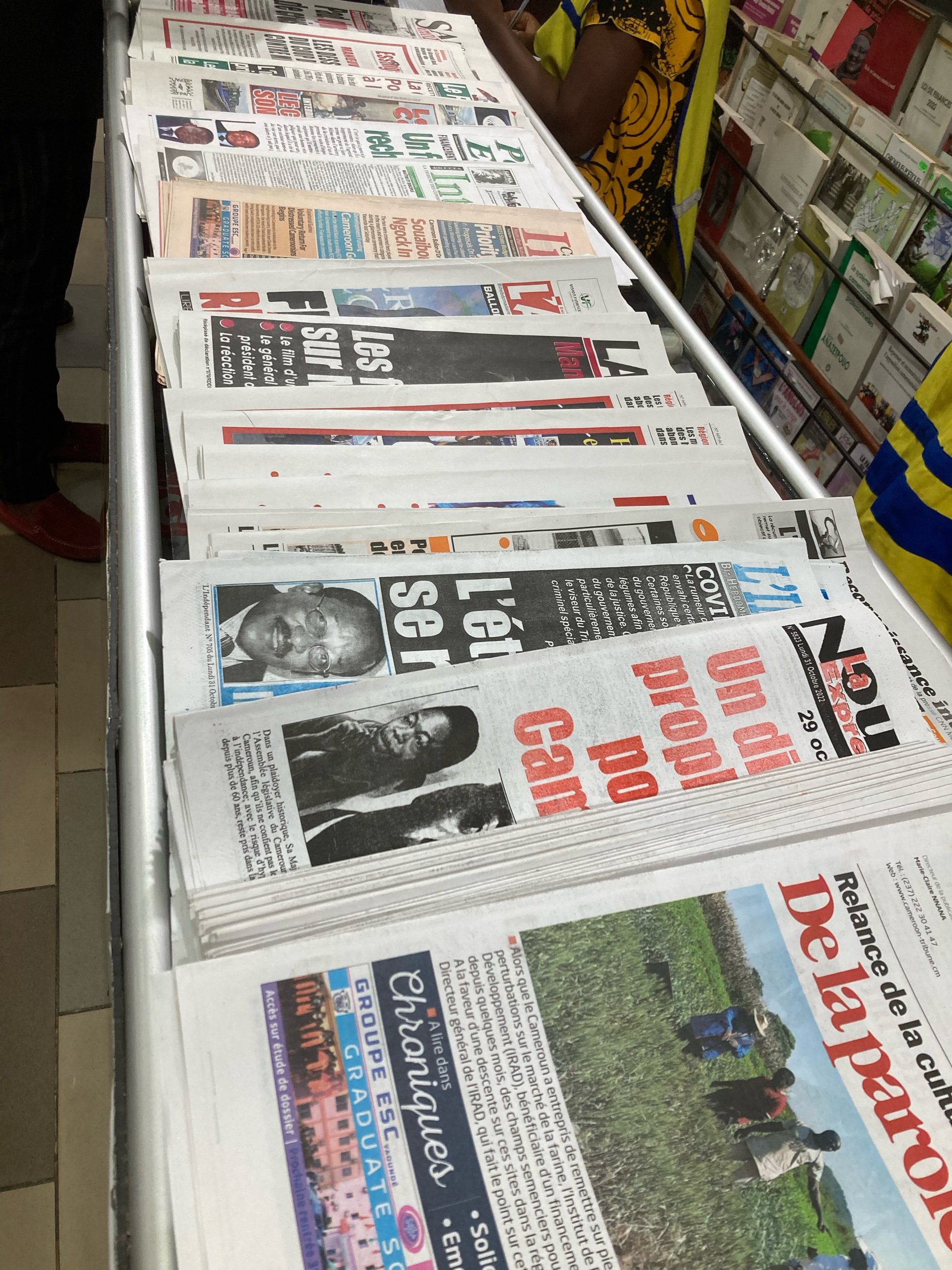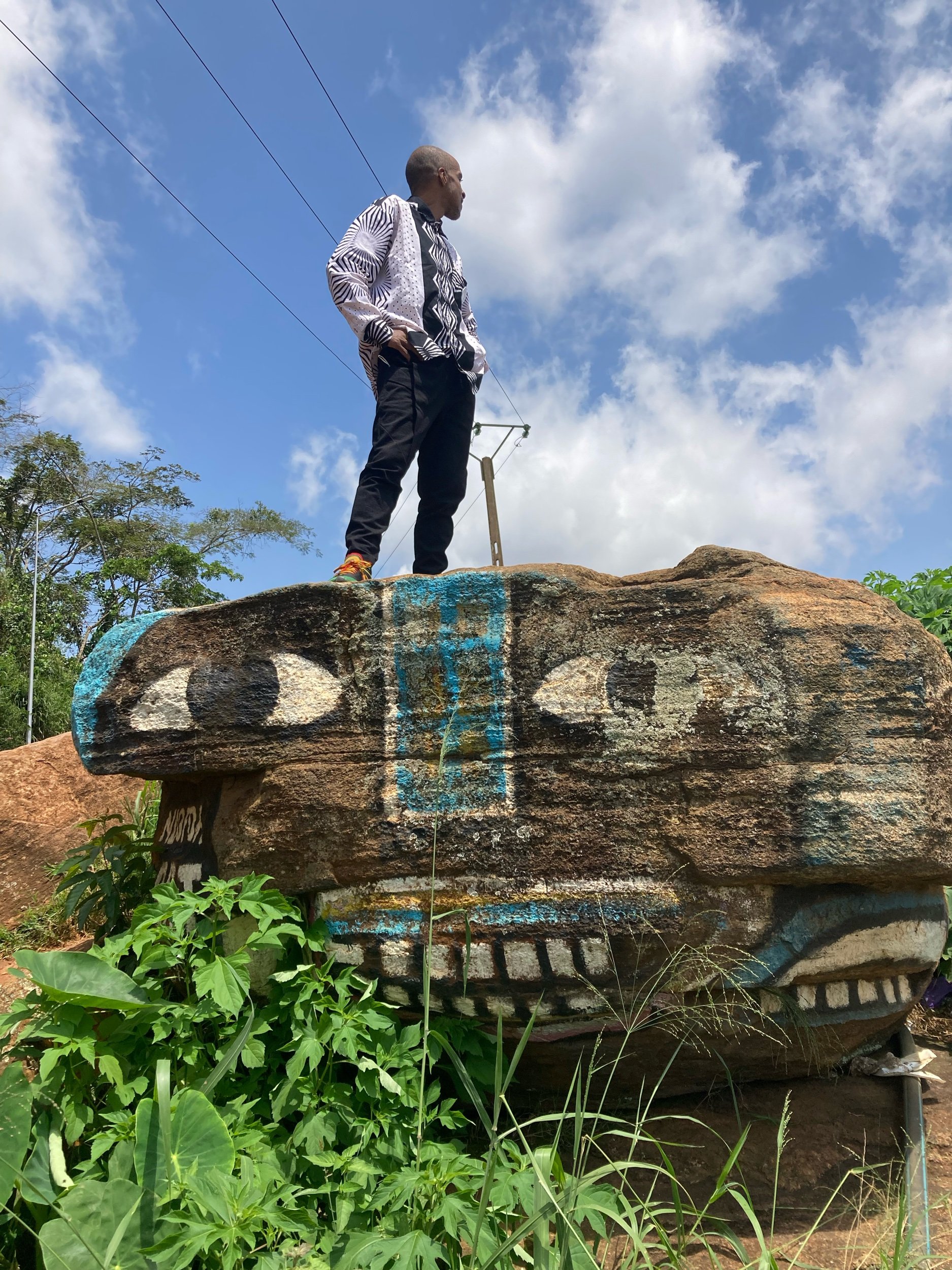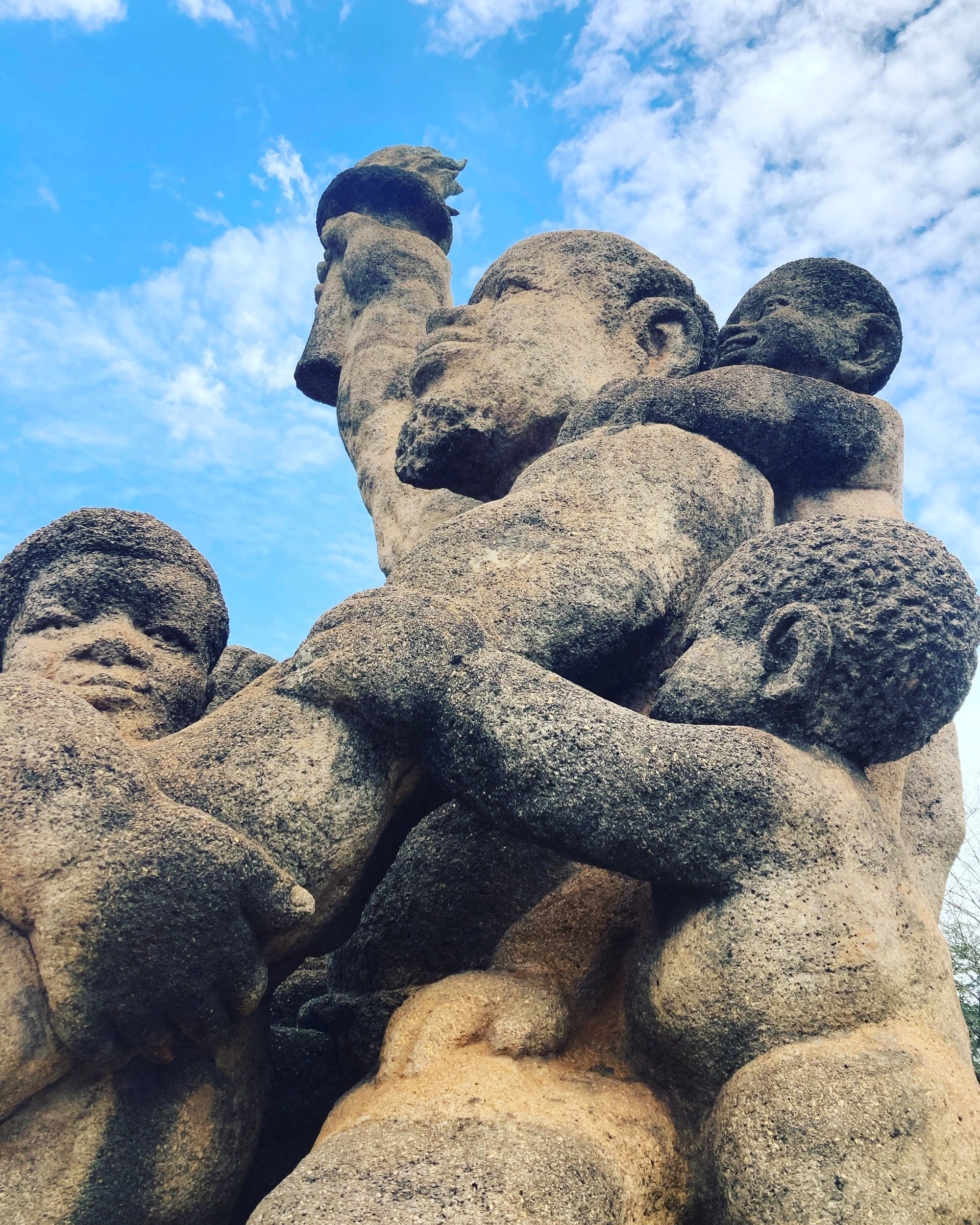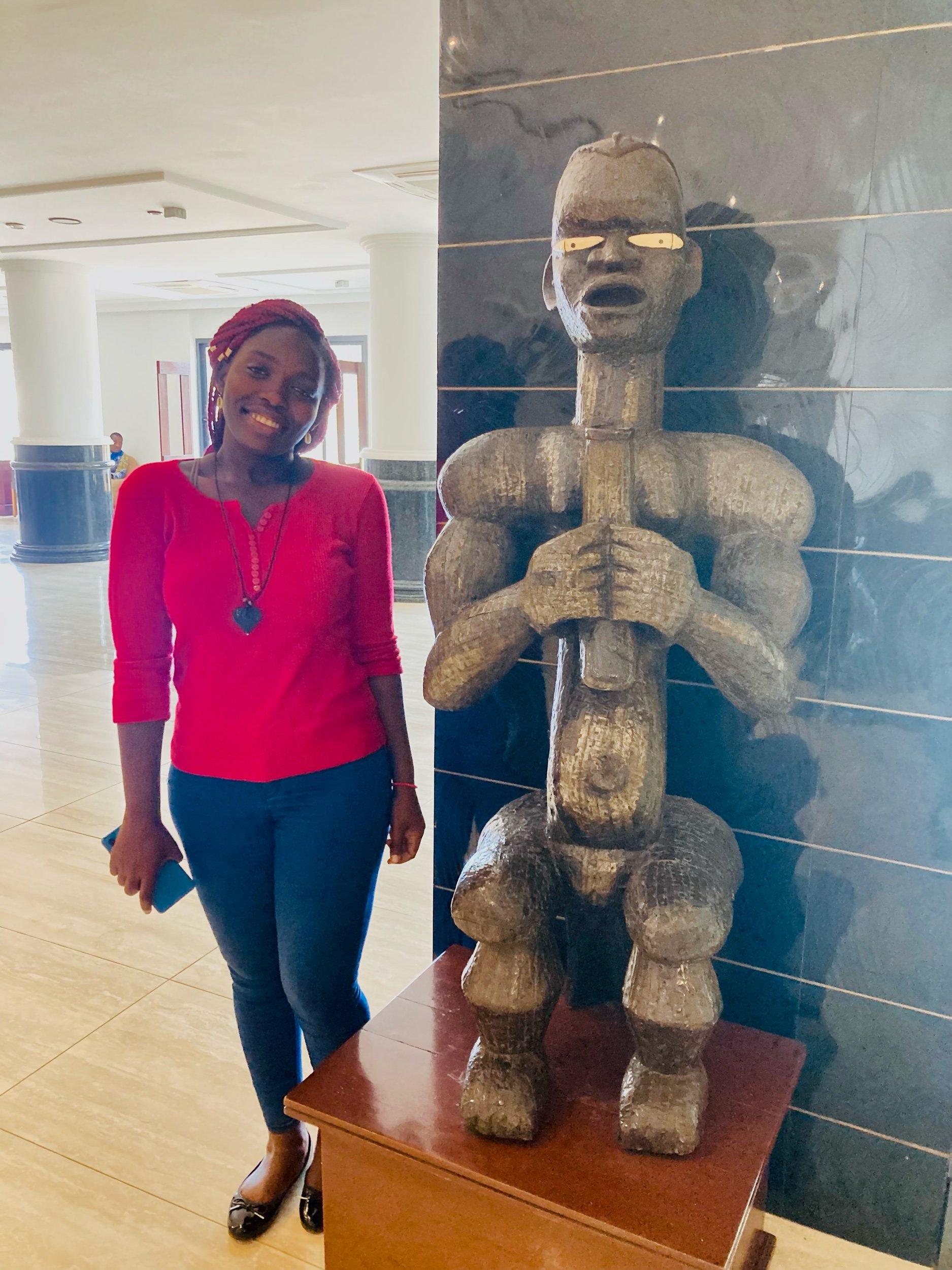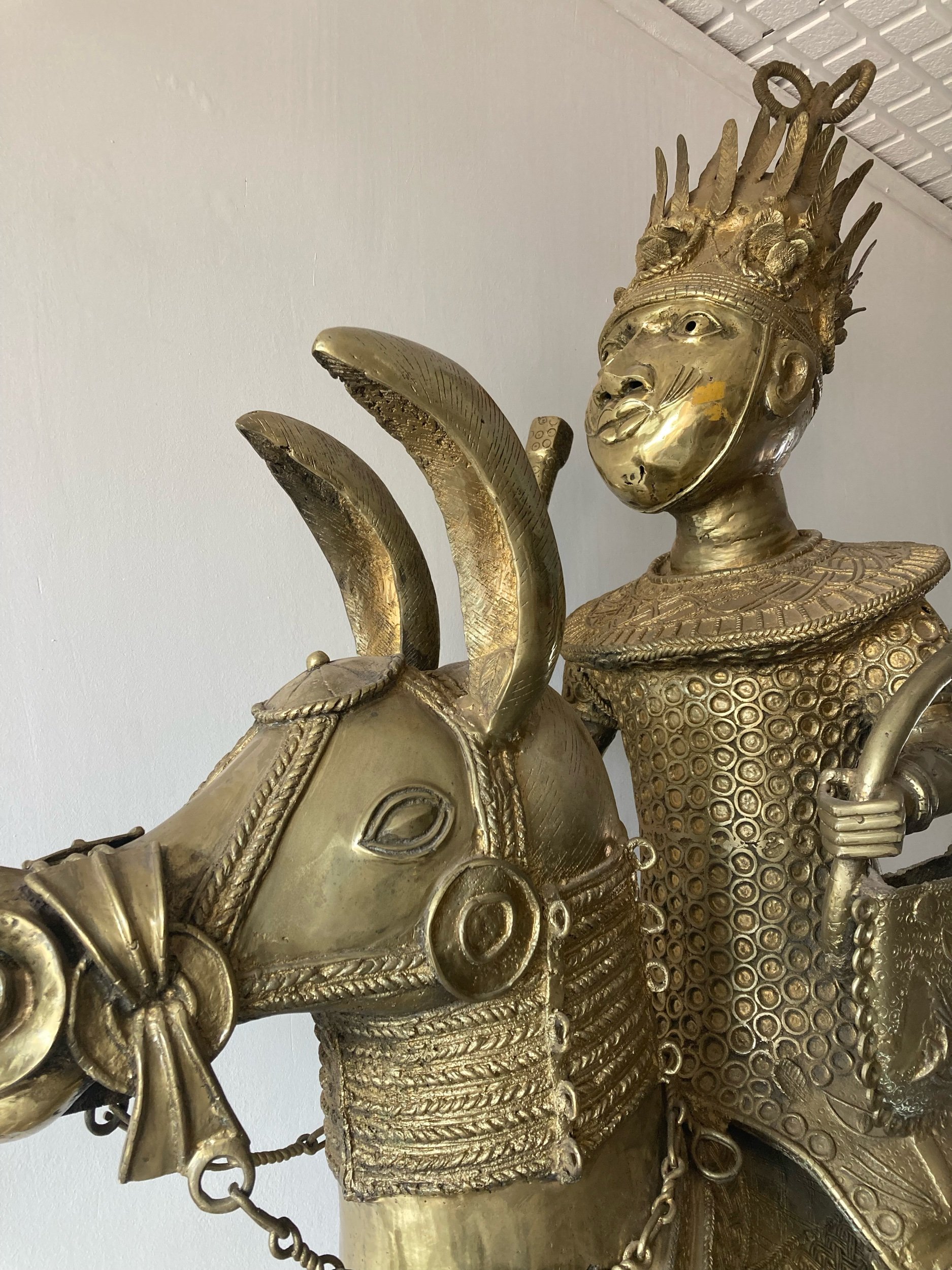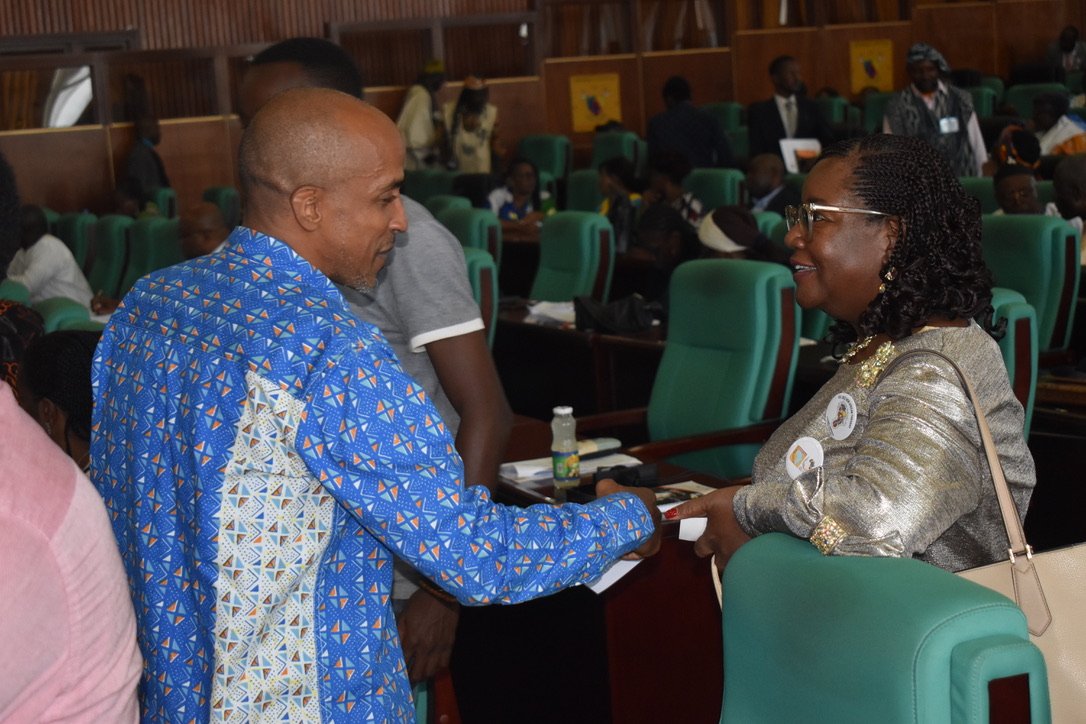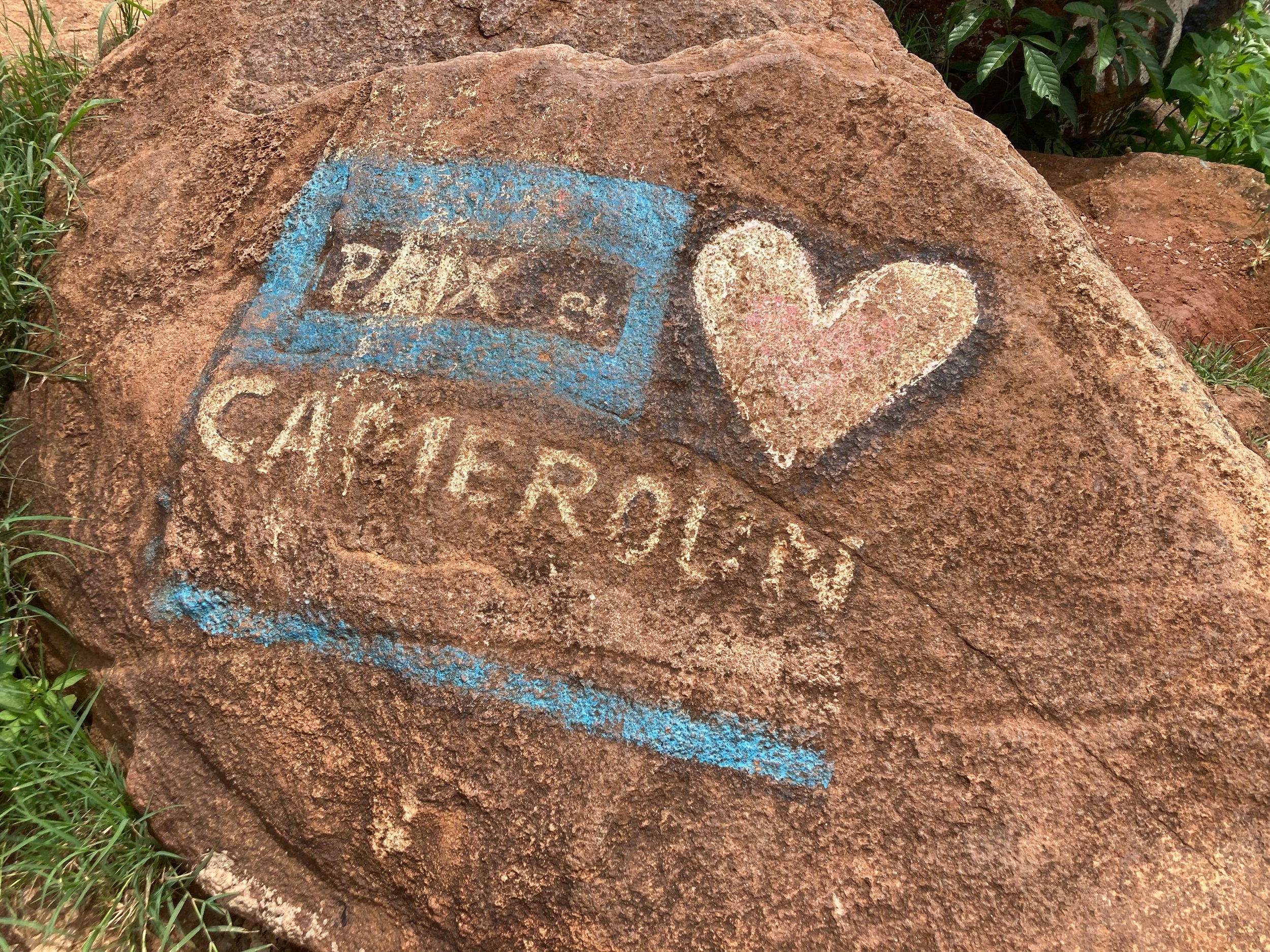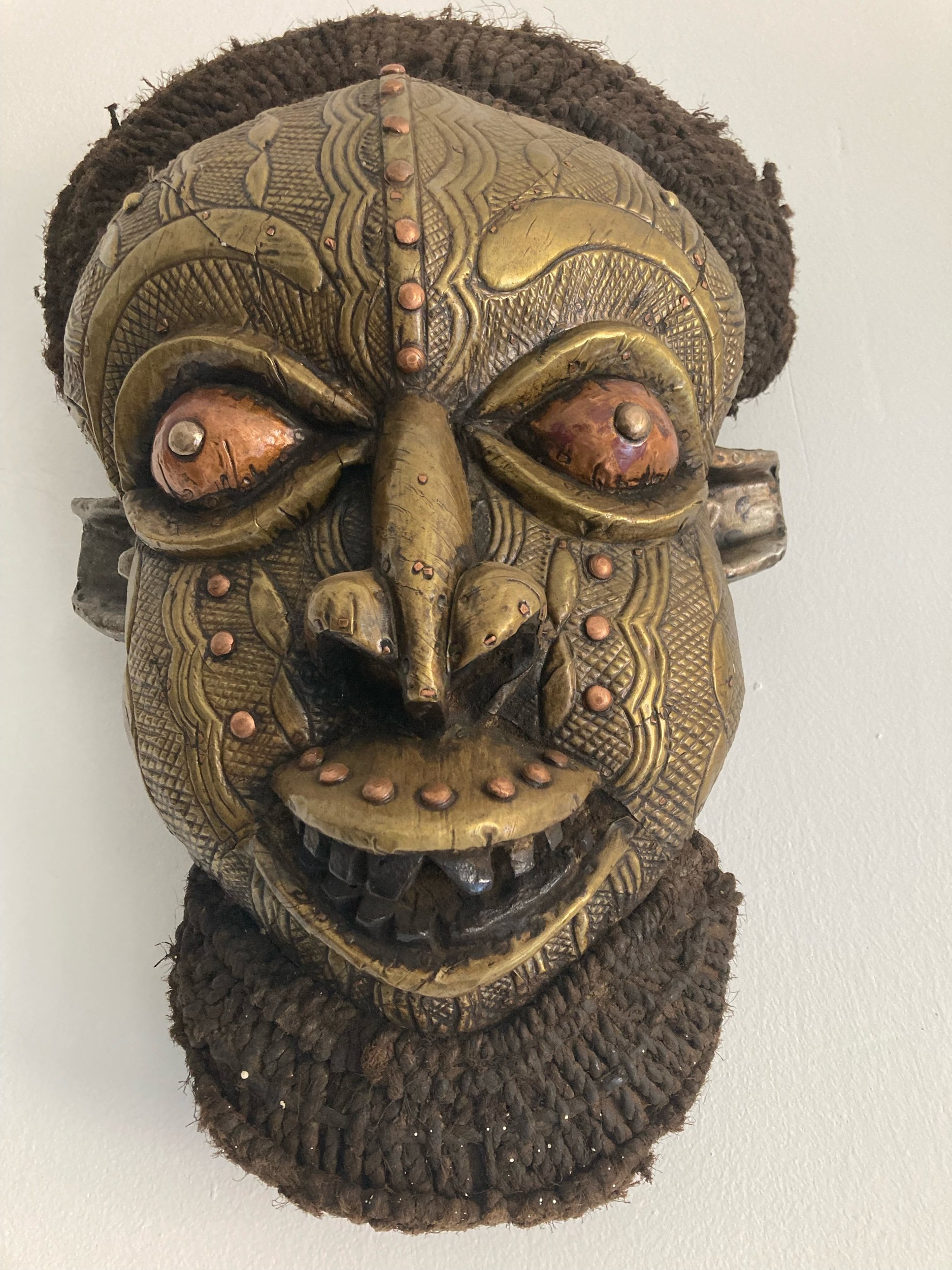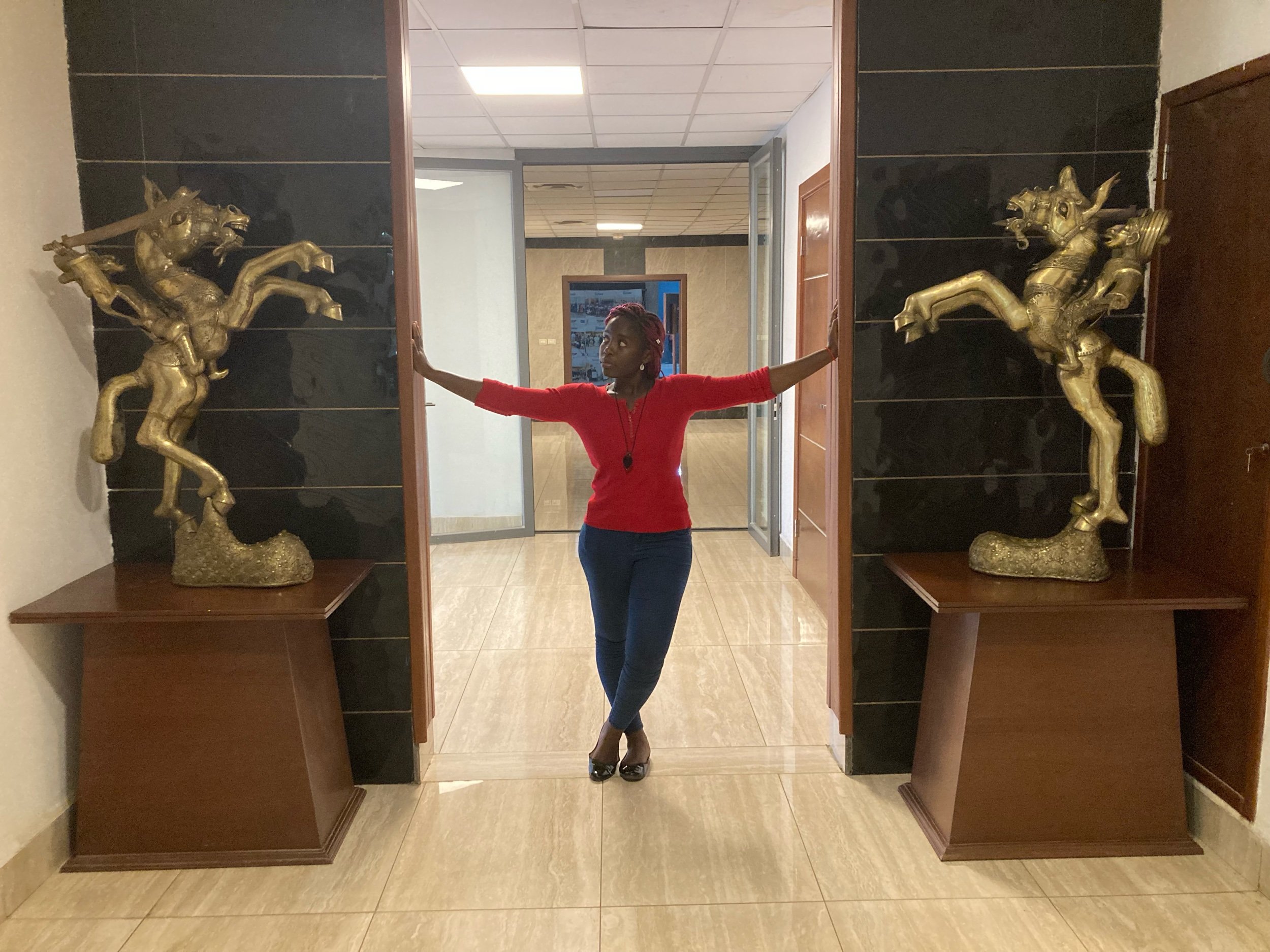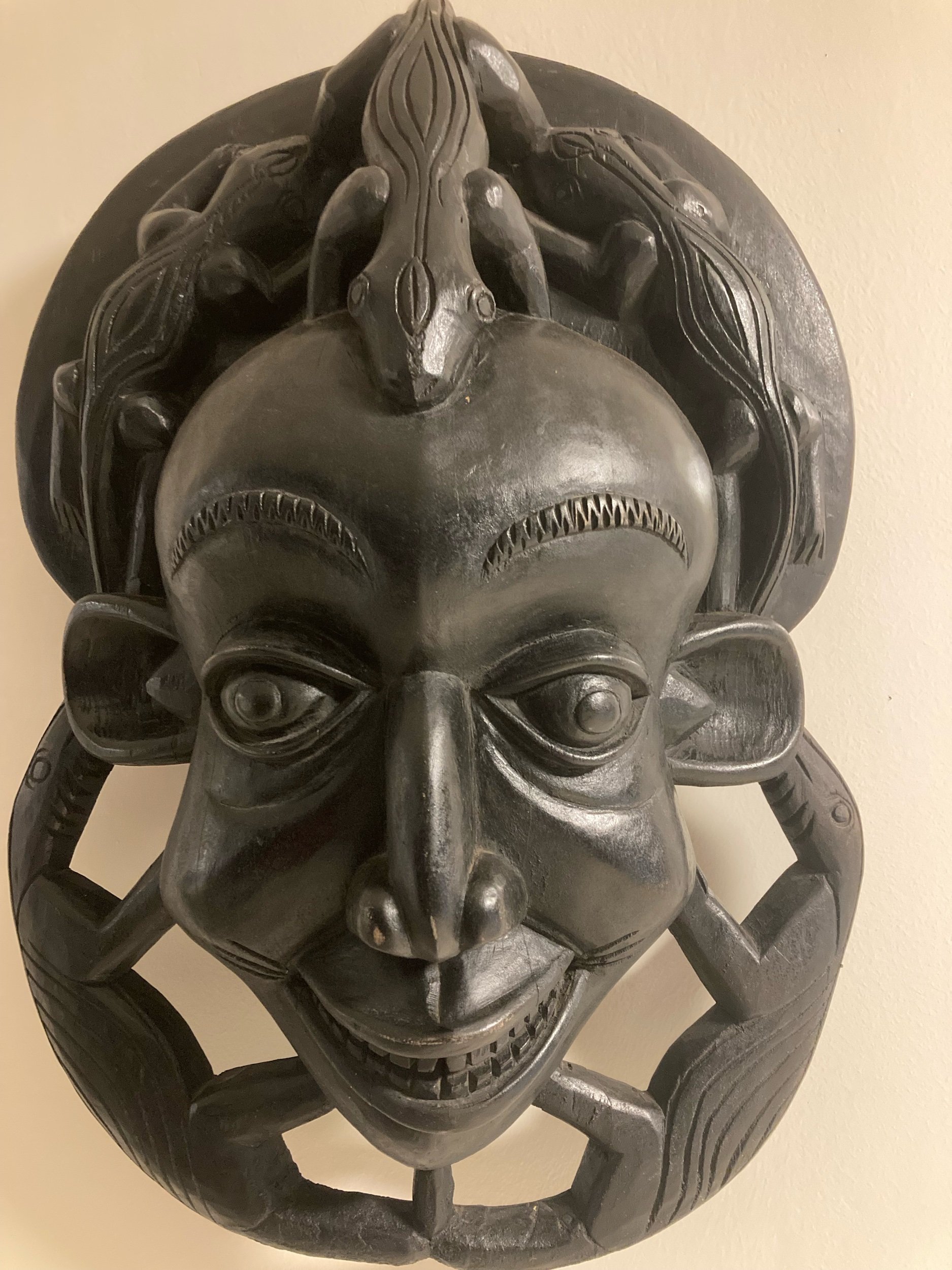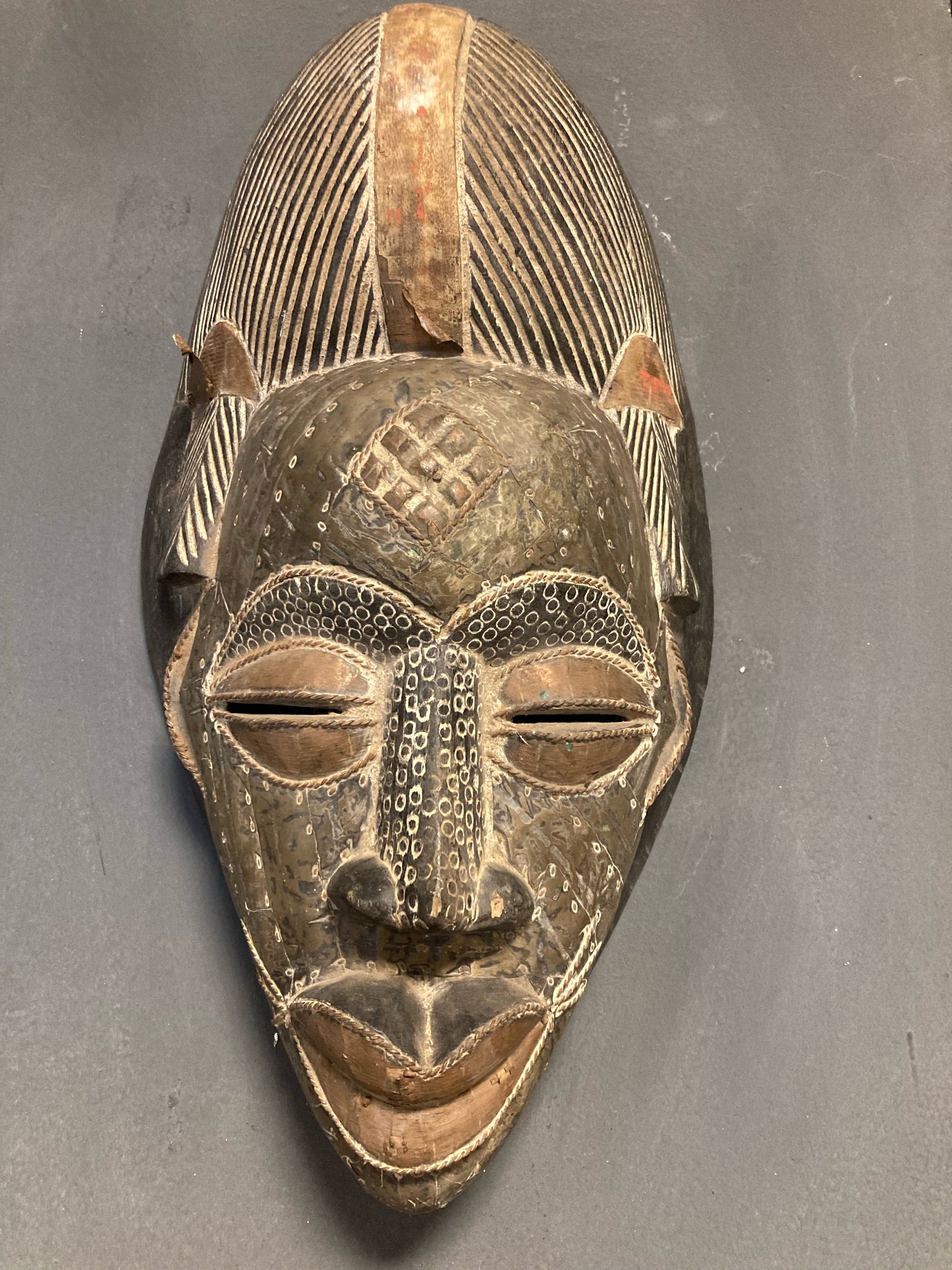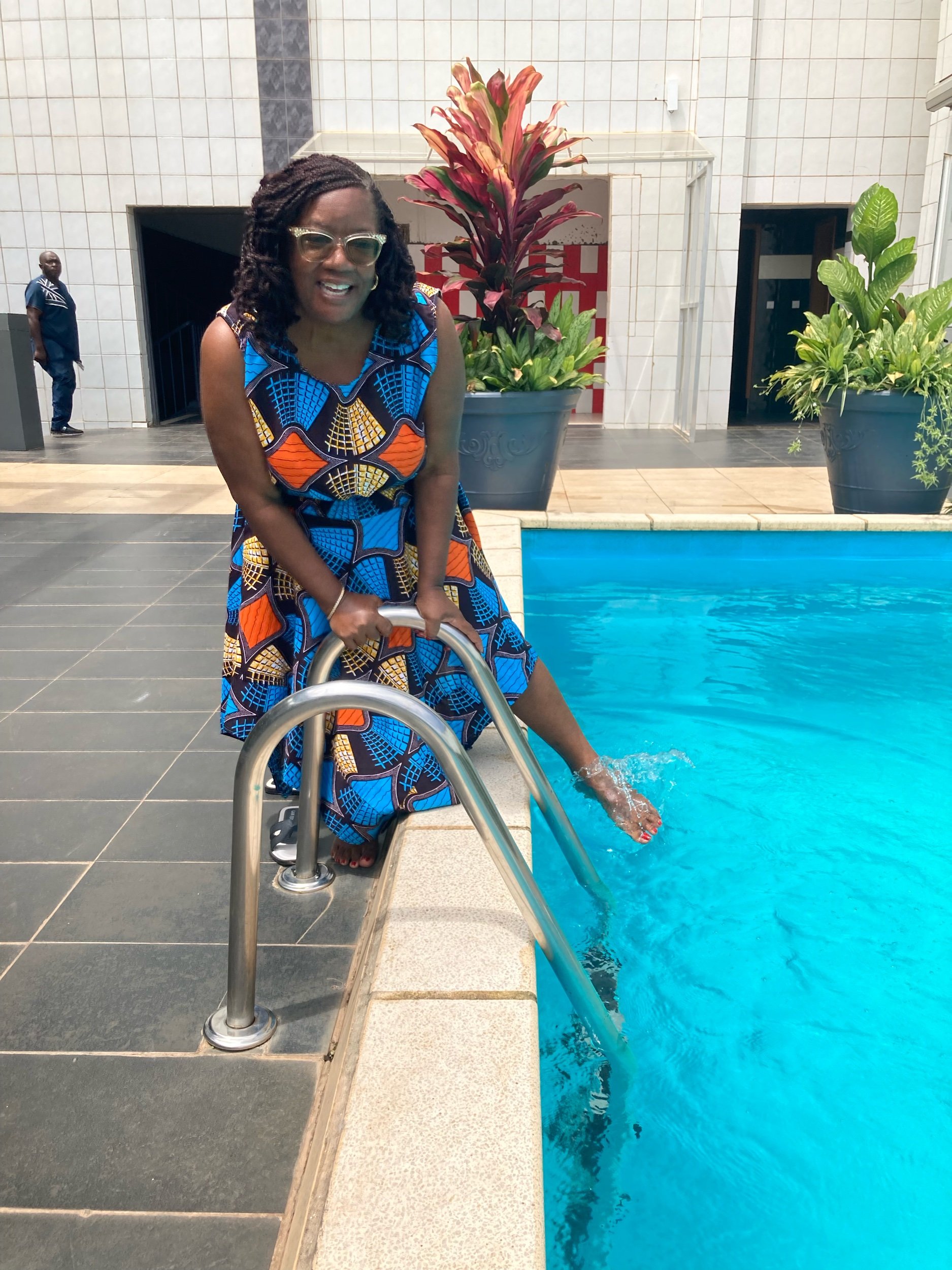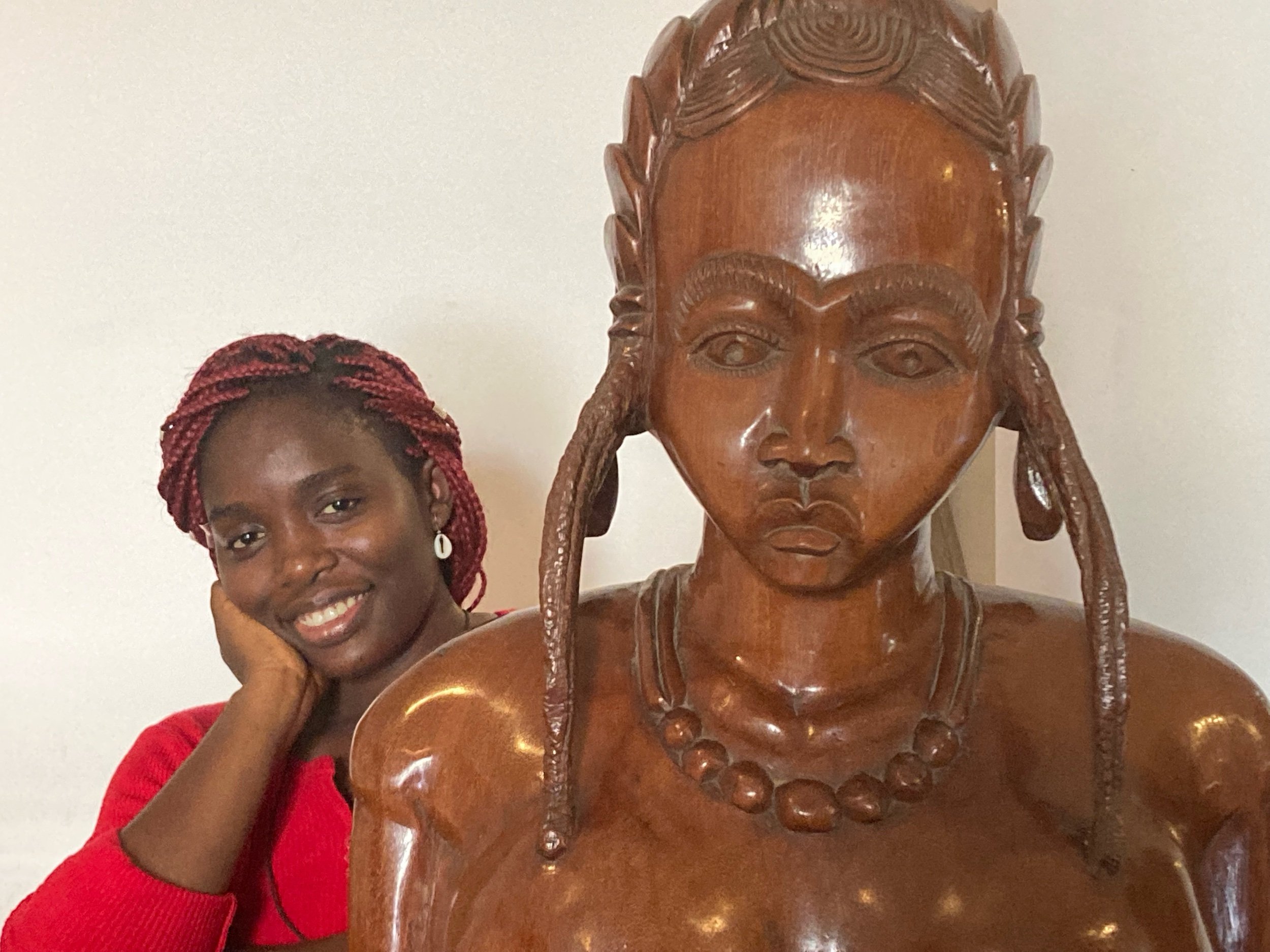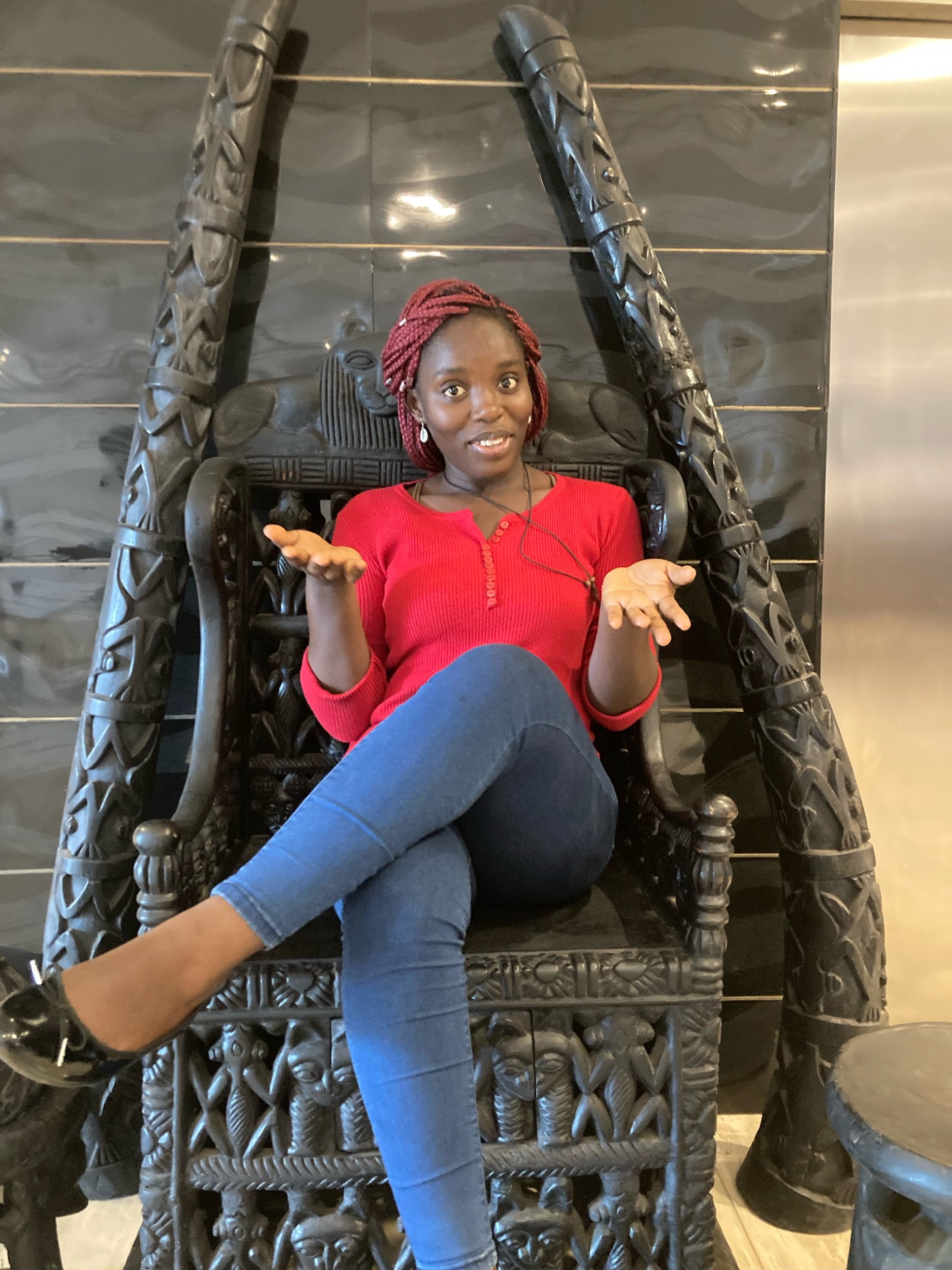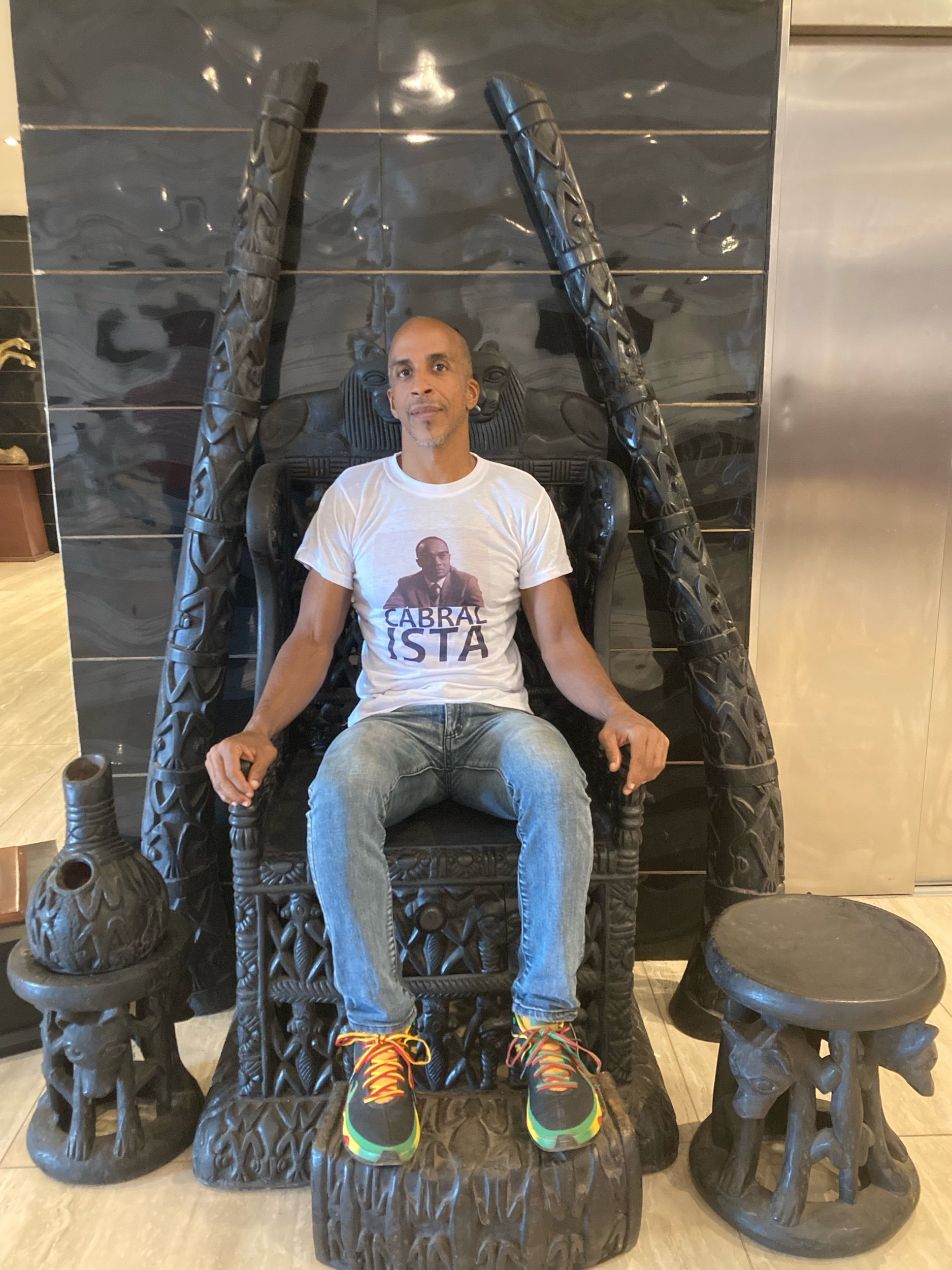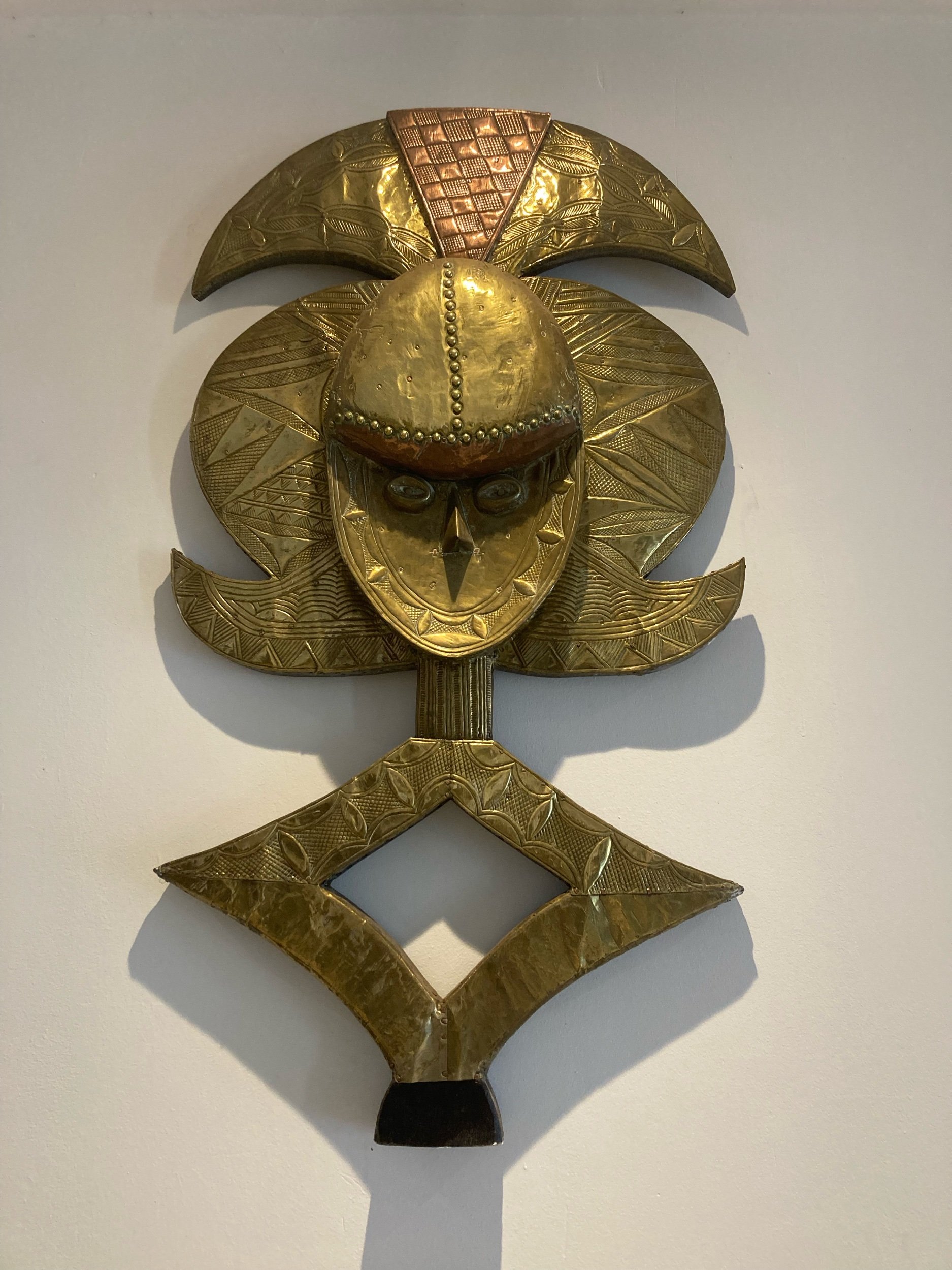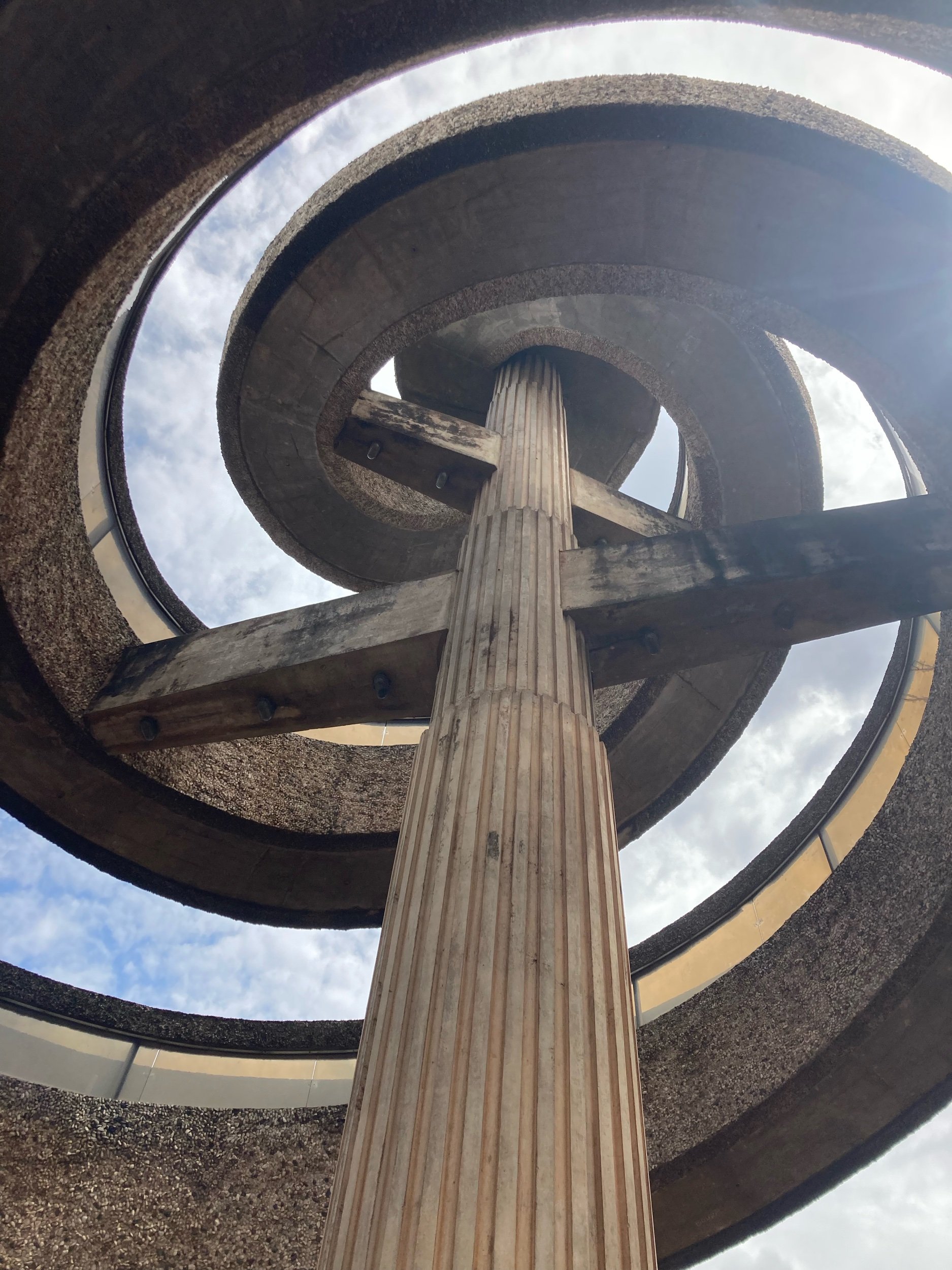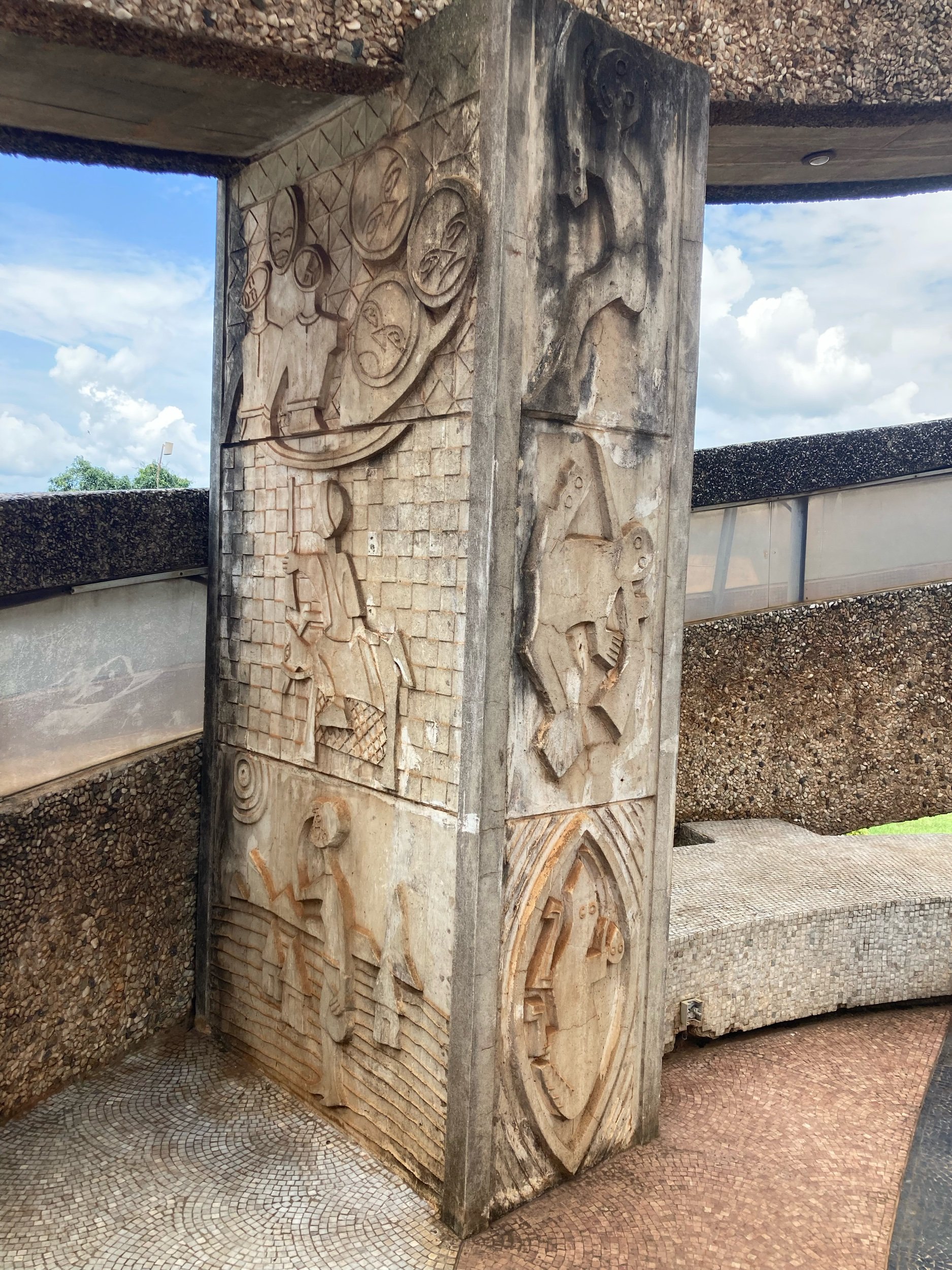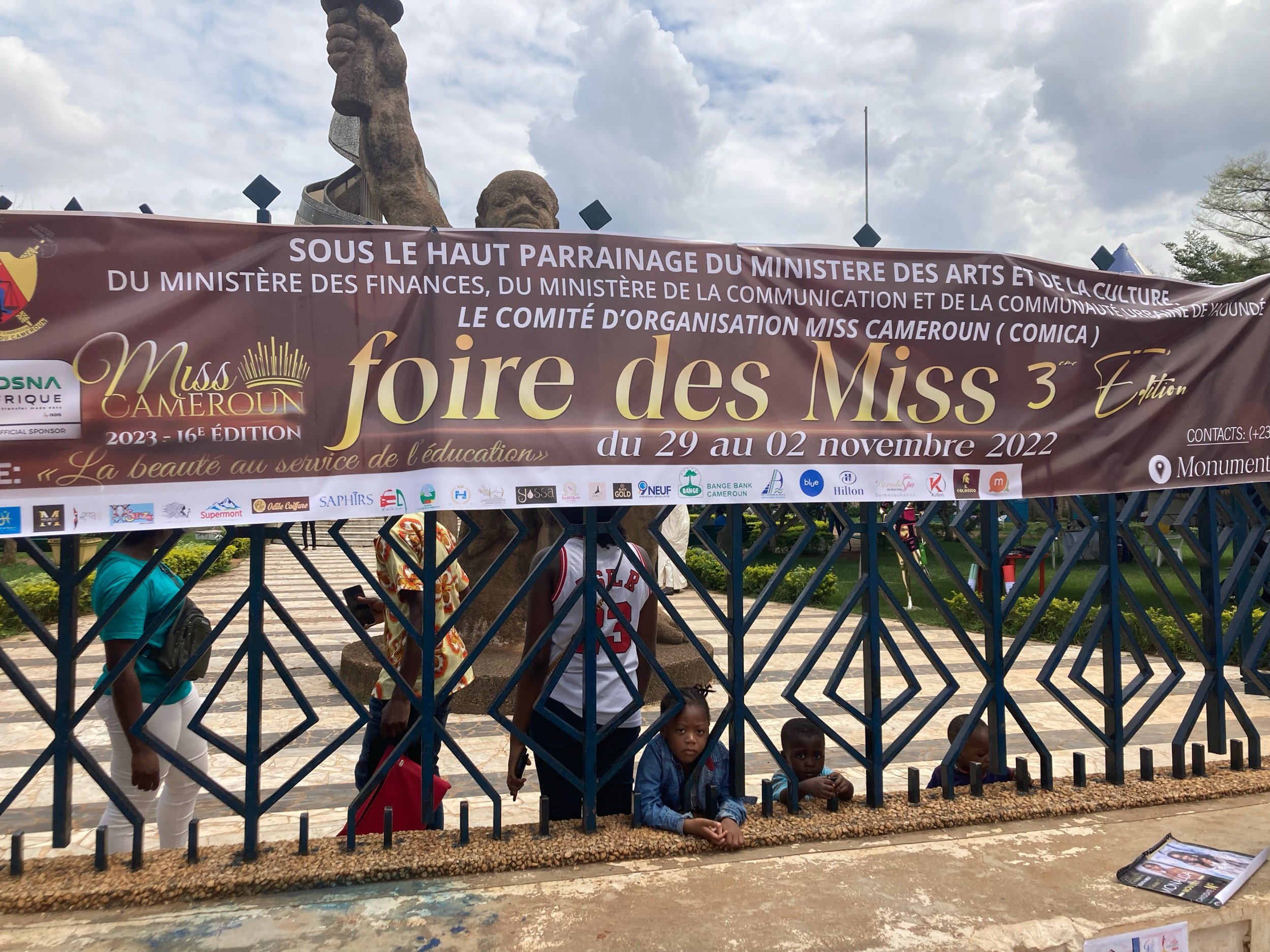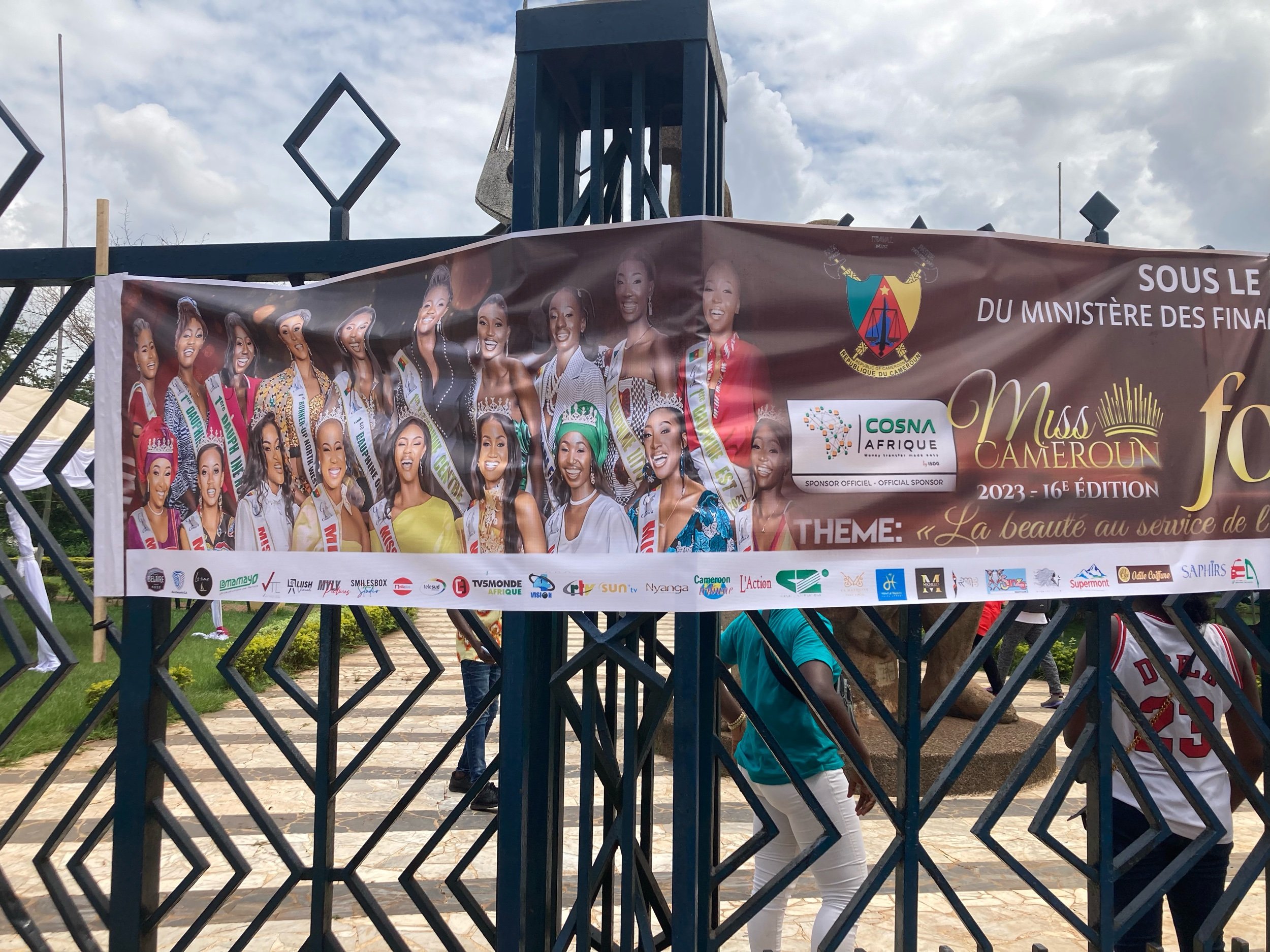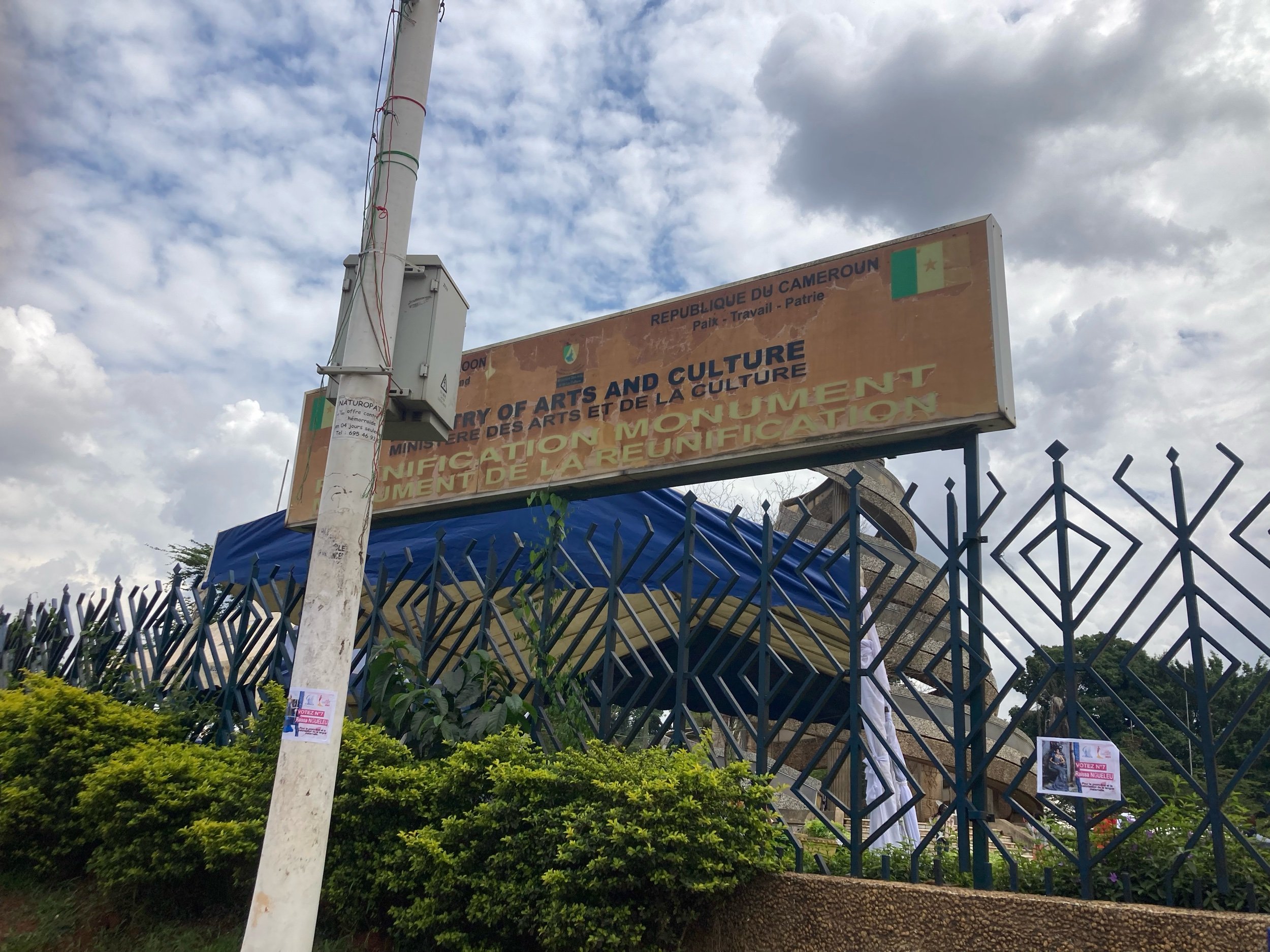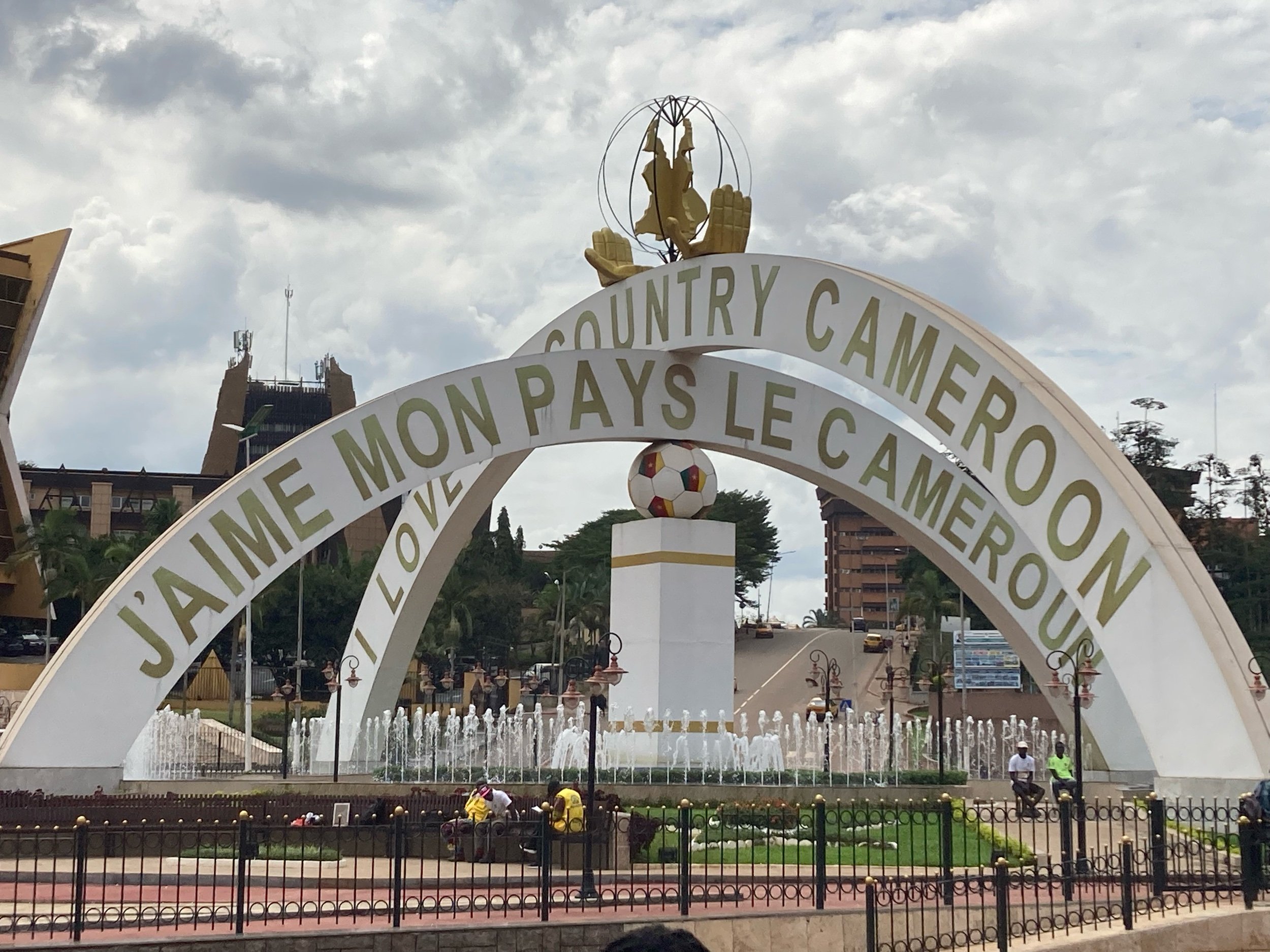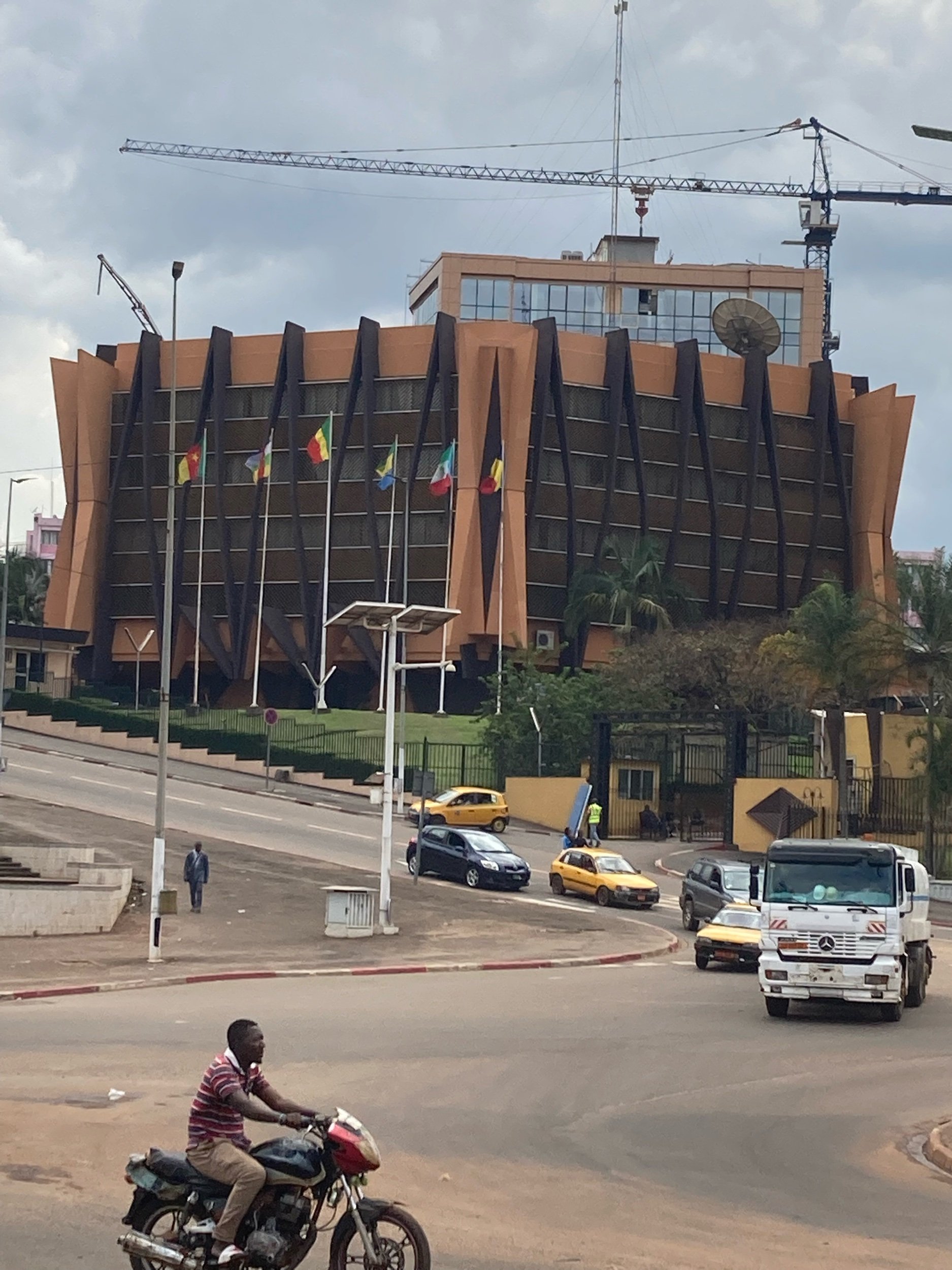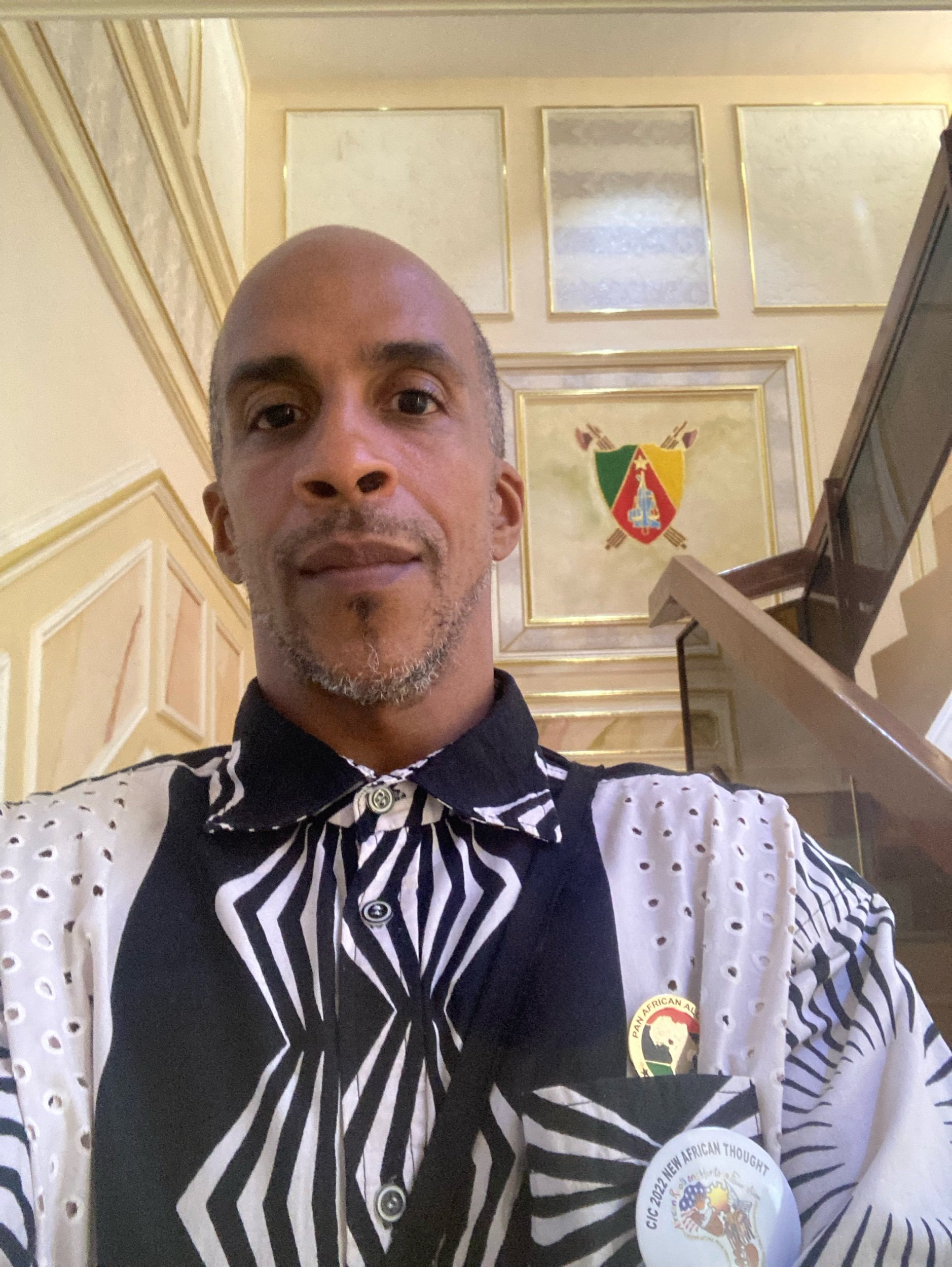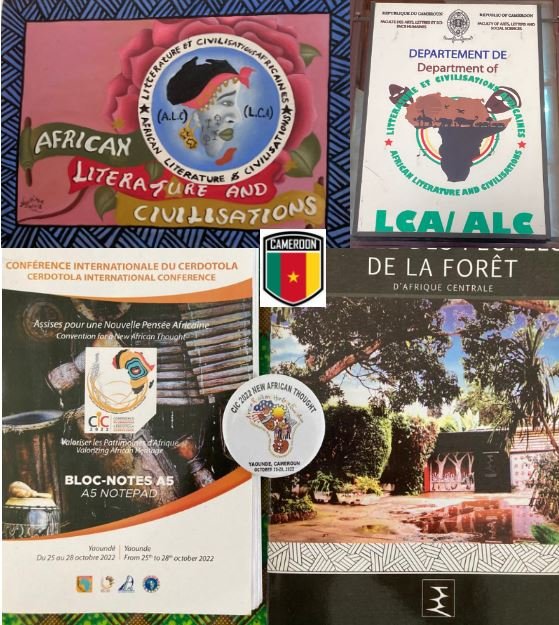From October 24 to November 2, 2022, I was the guest of Profoessor Anita Diop and the African Roots and Heritage Foundation (ARHF). I was invited to present my paper, New Afrikan Consciousness vs. New Afrikan Thought: Mysticism in the Age of Artificial Intelligence at the THE NEW AFRIKAN THOUGHT CONFERENCE in Yaounde, Cameroon, hosted by the INTERNATIONAL RESEARCH AND DOCUMENTATION CENTER ON AFRICAN TRADITIONS AND LANGUAGES (CERDOTOLA). You can watch all the videos of the Conference here.
Here is my report of the conference.
After the Conference, ARHF arranged for me to see the city of Yaounde as well as visit the Museum of the Forest People.
Here is my report of the Museum of the Forest People
On October 31, Professor Diop and I joined Professor Dolisane Ebosse Nyambe Cecile, Director of the Department of African Languages and Civilizations at Yaounde 1 University for an amazing lecture with her students. Before departing, I was able to meet with Gwedji Doris Wainwel, Director of Services in the Ministry of External Relations of the government of Cameroon. Below is my report of those events.
The Department of African Languages and Civilizations at Yaounde 1 University
Professor Anita Diop, Founder, African Roots and Heritage Foundation; Siphiwe Baleka, and Professor Dolisane Ebosse Nyambe Cecile, Director of the Department of African Languages and Civilizations at Yaounde 1 University
I was very excited when I arrived at the Department of African Literature and Civilizations at Yaounde 1 University. I was received by the Department Director, Professor Dolisane Ebosse Nyambe Cecile, Dr. Mbu Dora, and Professor Oumarou Jimira. They gave me a history of the department and an overview of the collection of theses archived in the department.
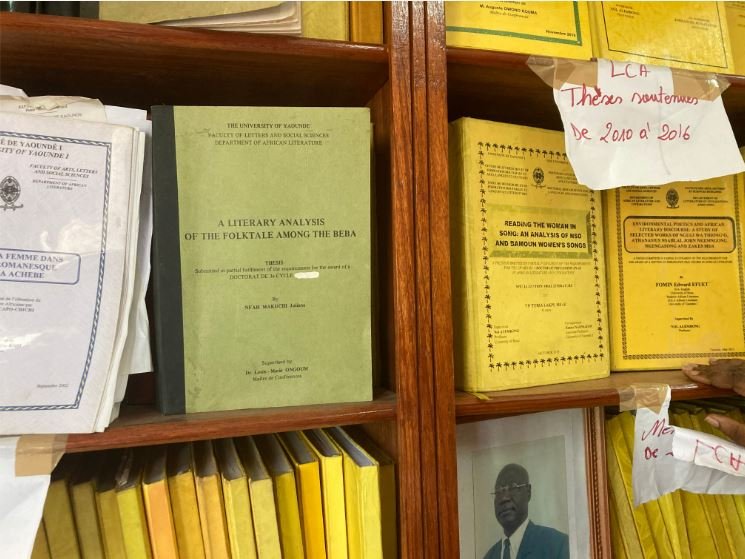
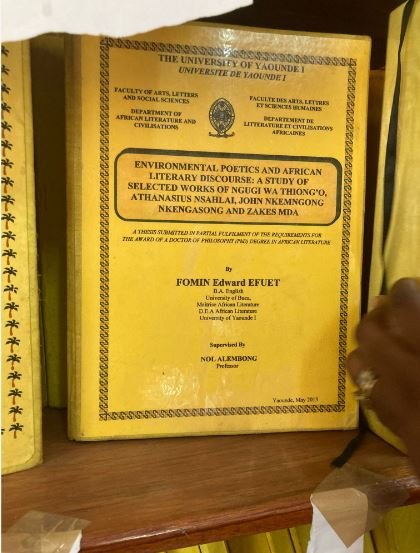
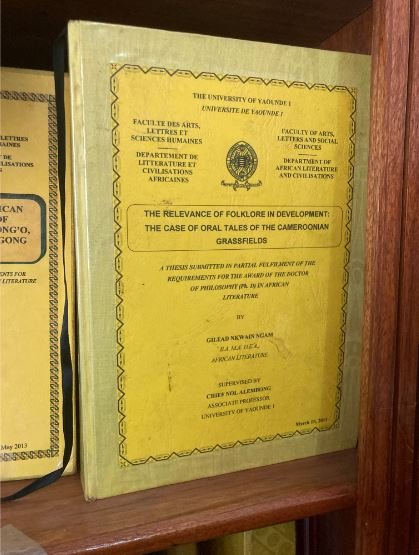
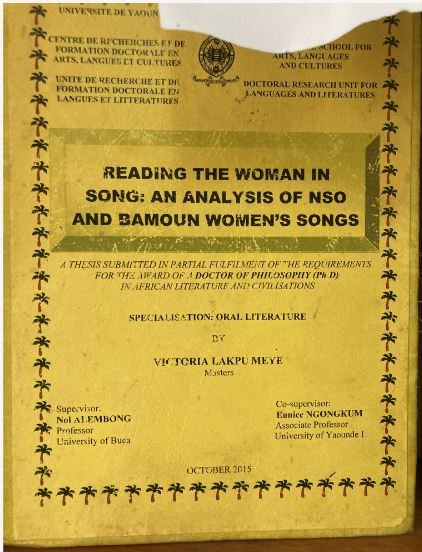
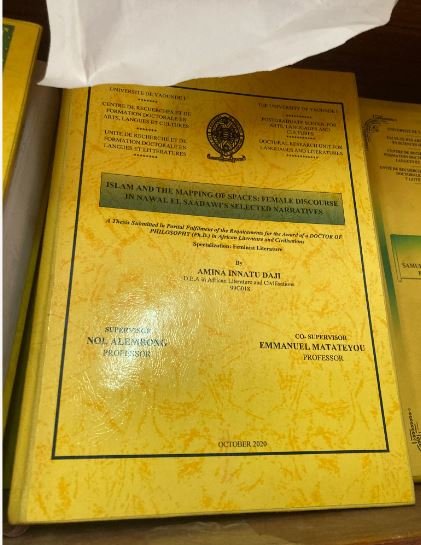
Professor Dolisane Ebosse Nyambe Cecile explained the challenges that the department had and still has attracting students, who are influenced to study more “European” fields as they lead to more “lucrative” jobs. The department, however, has been successful in creating a diplomatic corps that is going to be more influention as the New Afrikan Thought spreads and develops. Meanwhile, an immense amount of cultural knowledge of the people of Cameroon and surrounding areas is archived here. Unfortunately, as is the case across the continent and as I have witnessed myself in several African libraries and museums, the storage conditions are poor and threatens the preservation of the material. There is an urgent need for digitizing the collection so that it can be both preserved and disseminated. As of now, however, to access the information, a person must come to the Department. This is one of the components of the Decade of Return to Cameroon Initiative - to connect people to this precious archive of information as well as develop partnerships, like the developing partnership between the African Union (AU) and the historically black colleges and universities (HBCU’s) in the United States which could create multidisciplinary exchange programs where students of library sciences and African languages and civilizations could earn degree credits for digitizing the collection.
When it was time to speak, the ancestors took over. I spoke in English, which most of the students understood, and they asked questions, mostly in French, which were translated to me. The lecture and question and answer session was wide ranging and covered ancient history, African Americans, the African future, the importance of identity and traditional African languages, and the Decade of Return to Cameroon Initiative. Professor Dolisane Ebosse Nyambe Cecile helped to emphasize the technical points I was making. Fortunately, ARHF recorded the lecture!
Later that eveneing, Professor Oumarou Jimira joined us at ARHF headquarters in Yaounde. Professor Jimira’s PhD topic is Pan African discourse, Cultural articulation and Human rights in Postcolonial Musicology and I was able to give him a lot of information on the origin of the Pan African movement and the Rastafari movement, both of which started in Chicago in the early 1900’s, as well as the esoteric components of the Nyhabinghi drumming that originated in Uganda and how it informed the Pan African component of reggae music.
MINISTRY OF EXTERNAL AFFAIRS
One of my Cameroonian contacts living in London, Brother Monkom, helped me to connect with Dr. Elong, a Paramount Chief and Professor of International Relations. Prior to arriving in Cameroon, I share with him the report, TOWARDS A RIGHT TO RETURN & CITIZENSHIP POLICY FOR DESCENDENTS OF PEOPLE TAKEN FROM TERRITORIES IN AFRICA DURING THE TRANSATLANTIC TRAFFICKING AND ENSLAVEMENT OF AFRICAN PEOPLE: CASE STUDY CAMEROON


















Dr. Elong informed us that Cameroonian President Paul Biya was coming to America to attend the US-Africa Summit in December 2022. He suggested that we use that opportunity to meet with His Excellency and thus, per the Professor’s recommendation, we drafted a request for an audience. Meanwhile, on November 1, Professor Diop and I met with Gwedji Doris Wainwel, Director of Services in the Ministry of External Relations. Professor Diop explained ARHF involvement in the diaspora and in Cameroon, and I explained the potential of Cameroon to become the focus of the Decade of Return Initiative in 2023 ahead of the African Diaspora Pan African Congress in Zimbabwe in April 2023. She explained to us that her office is in charge of the affairs of Cameroonians abroad and that she agreed that the time was ripe for Cameroon to launch a Decade of Return program. Ms. Wainwel requested we prepare information to send to the Minister of External Affairs.
Siphiwe Baleka, Gwedji Doris Wainwel, Director of Services in the Ministry of External Relations, and Professor Anita Diop



During the meeting, I explained to Ms. Wainwel that the issue of citizenship is one of the most important issues to what the African Union refers to as the “historic” Diaspora - those of us who are descendants of people captured as prisoners of the Dum Diversas war and enslaved in the America’s. As noted in the Cameroonian Case Study, United States v The Libelants and Claimants of the Schooner Amistad - 1841 makes clear that
“it is admitted that the African . . . owe no allegiance to (any Nations laws) their rights are to be determined by the law which is of universal obligation - the law of nature. . . a former domicile is not abandoned by residence in another if that residence be not voluntarily chosen. Those who are in exile, or in prison, as they are never presumed to have abandoned all hope of return, retain their former domicile. That these victims of fraud and piracy - husbands torn from their wives and families - children from their parents and kindred - neither intended to abandon the land or their nativity, nor had lost all hope of recovering it, sufficiently appears from the facts on this record.”
Thus, according to natural law and international law, and specifically the Geneva Convention, the descendants of Tikar, Hausa, Fulani, Bamileke, Masa, Mafa, Kotoko, Ewondo and other ethnic groups were taken from families living in territories now belonging to Cameroon have the right to return and citizenship to their ancestral homeland. Moreover, according to the Law No. 1968-LF-3 of the 11th June 1968 to set up the Cameroon Nationality Code, Section 3:
Section 3.
Provisions regarding nationality contained in international treaties or agreements duly ratified and published shall have effect in Cameroon even though contrary to the provisions of Cameroon internal legislation.
This is important since Cameroon does not recognize dual citizenship and this has been a stumbling block for the ex-patriate Cameroonian Diaspora. It is our vision and hope that the claims of the “historic” diaspora will help open the doors for changing the citizenship laws in Cameroon and thus impact the ex-patriate Cameroonian Diaspora in a positive way. Consequently, both diasporas should bond together and work together towards this end. This is a central component of the Decade of Return to Cameroon Initiative.
Ms. Wainel also expressed the desire to have a single umbrella organization to represent the descendants of Tikar, Hausa, Fulani, Bamileke, Masa, Mafa, Kotoko, Ewondo and other ethnic groups of Cameroonina origin. I then explained to her that there is a proposal to from Lineage Restoration Council’s in each African Union member state that could serve the purpose of streamlining the effective relationship and communication of the African Union 6th Region to AU Member States and to the AU itself.



Besides the formal business of the Conference, the University, and the Ministry of External Affairs, I was fortunate to be able to see the city, thanks to ARHF and my host, Anita Diop. With ARHF I was able to see some of the Yaounde nightlife and city.
